How would 200,000 additional FREE, organic search visits to your website every month impact your business?
Luxy Hair — one of the businesses we’ll discuss today — generates an estimated 225,000 visits (based on Ahrefs) to its blog directly from Google every month.
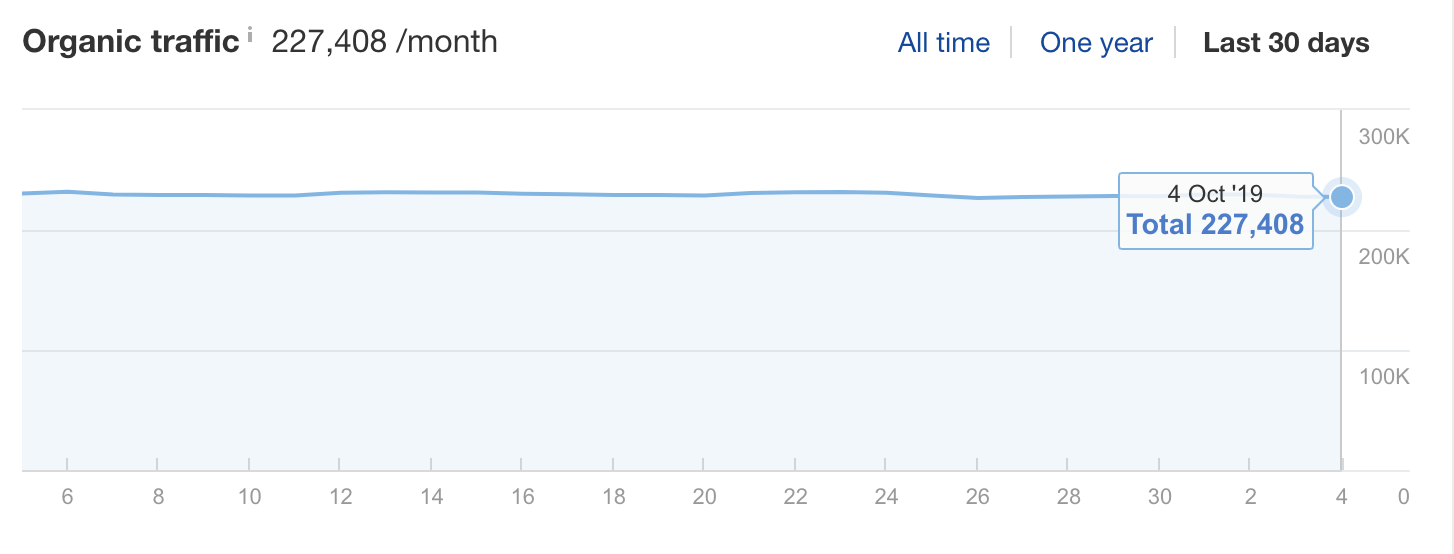
And Luxy isn’t an outlier; there are plenty of Shopify stores that drive thousands of visits through blogs.
If you’re looking for some inspiration and best-in-class examples of how Shopify businesses are using blogs to grow, this is the post for you.
Here are five uber-successful Shopify blogs and the strategies that make them successful.
%(tableofcontents)
Ready? Let’s ride along.
1. Death Wish Coffee
Blog URL: https://www.deathwishcoffee.com/blogs/news
Key takeaway: Use content to capture leads and grow your email list.
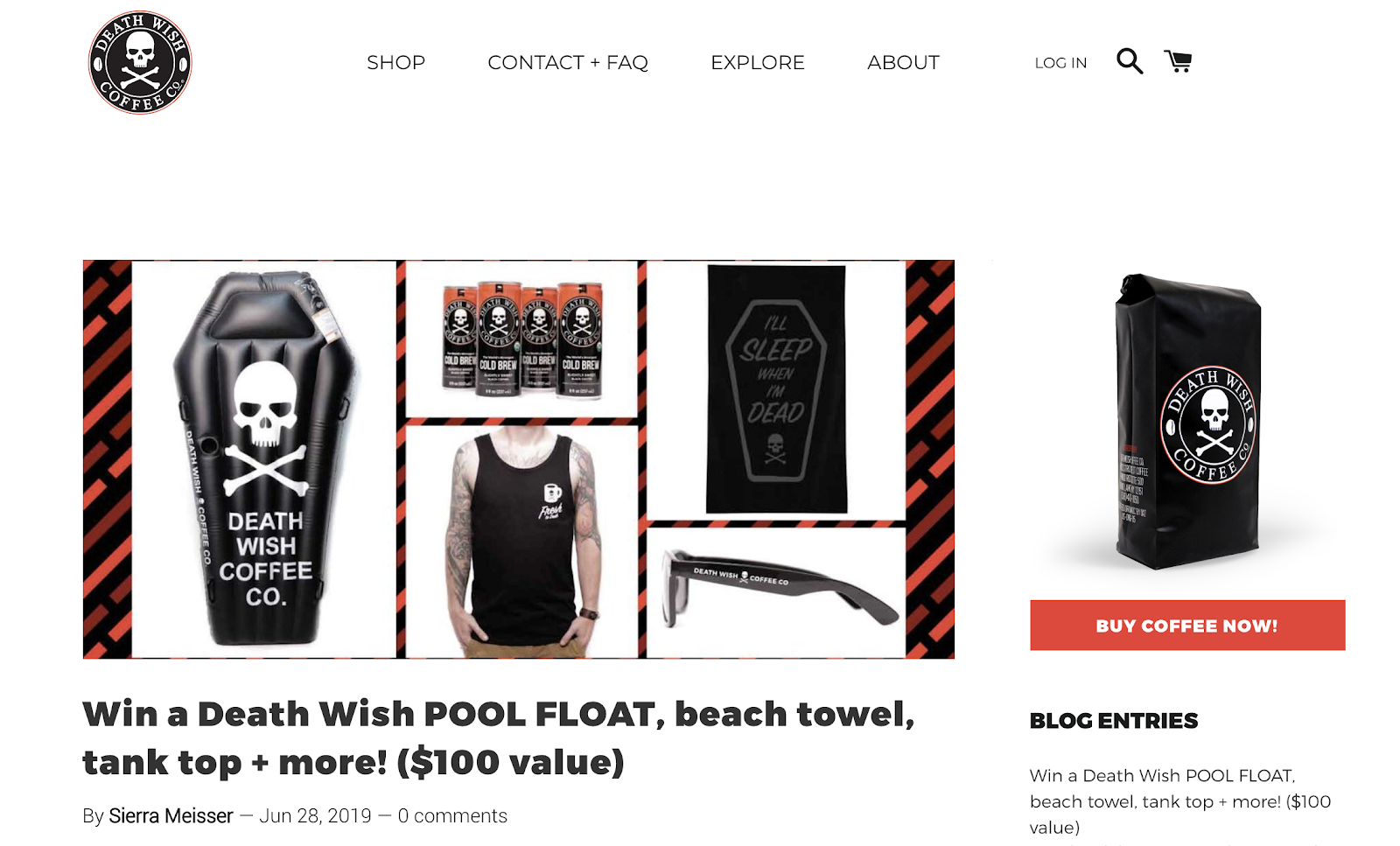
Death Wish Coffee sells some of the world’s strongest coffee.
Its blog shares information coffee drinkers will find interesting, such as “How coffee can help burn fat” and “Which coffees work best for cold brew.” They also use the blog to share product launches and company news.
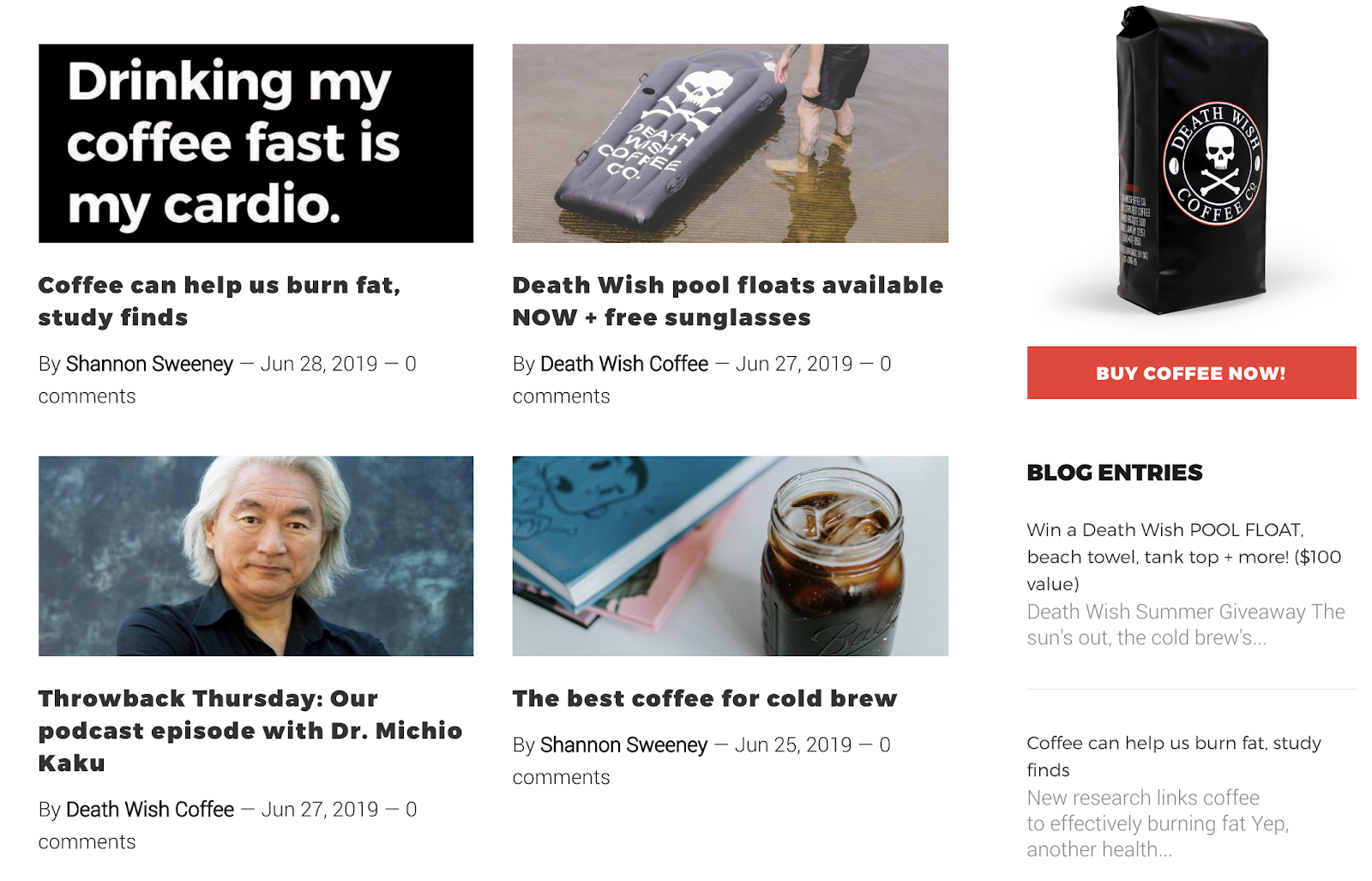
Its approach to content marketing has helped it to gain traction across search engines and it ranks for coffee-related keywords, which means more reach to its target customers: coffee lovers.
For example, this shows the blog owning the featured snippet for the search phrase “coffee before workout."
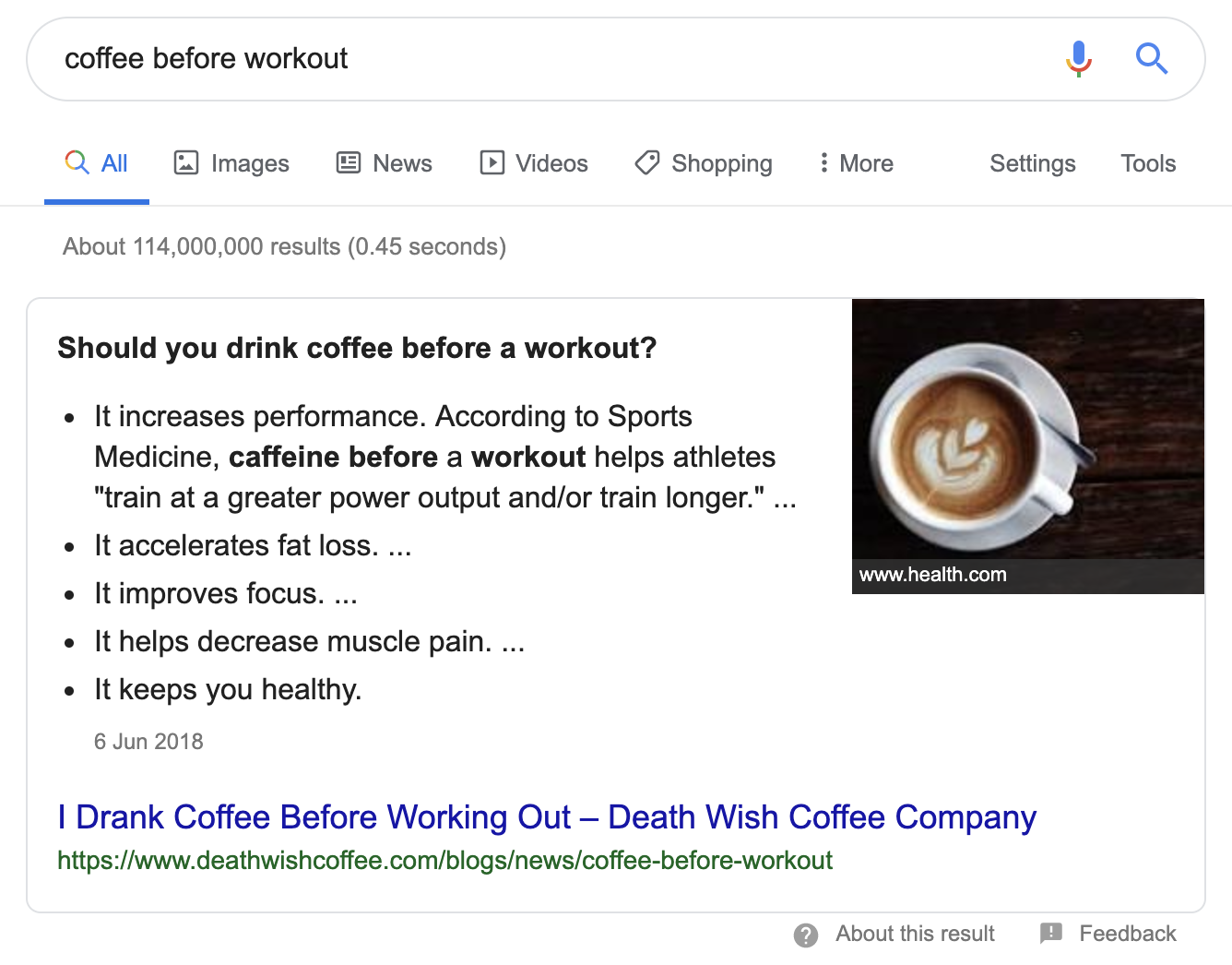
This query alone receives over 2,200 searches per month in Google, with around 50% of those searches resulting in the user clicking through to a website (according to Ahrefs).
Ahrefs also estimates this post generates 758 monthly visits for Death Wish Coffee, and overall the blog receives over 42,000 monthly visits from organic search results.
That’s 42,000 visits for FREE. Every. Month.
Sounds pretty incredible, doesn’t it?
But how does Death Wish Coffee convert these searchers into customers?
First, the blog features several lead capture opportunities, including a pop-up offering a 10% discount to first-time buyers who join their list (this opens up after a visitor has been on the blog for around 5-10 seconds):

It also has an email subscription call to action (CTA) underneath each post:

Every page on the blog also includes links to product pages, helping Death Wish Coffee to drive visitors through its funnel and toward a sale.
On the right sidebar of the blog, it showcases its flagship product with a “Buy Coffee Now!” button taking people to its store:

And underneath every post, it features CTAs taking visitors to other collections within its store:
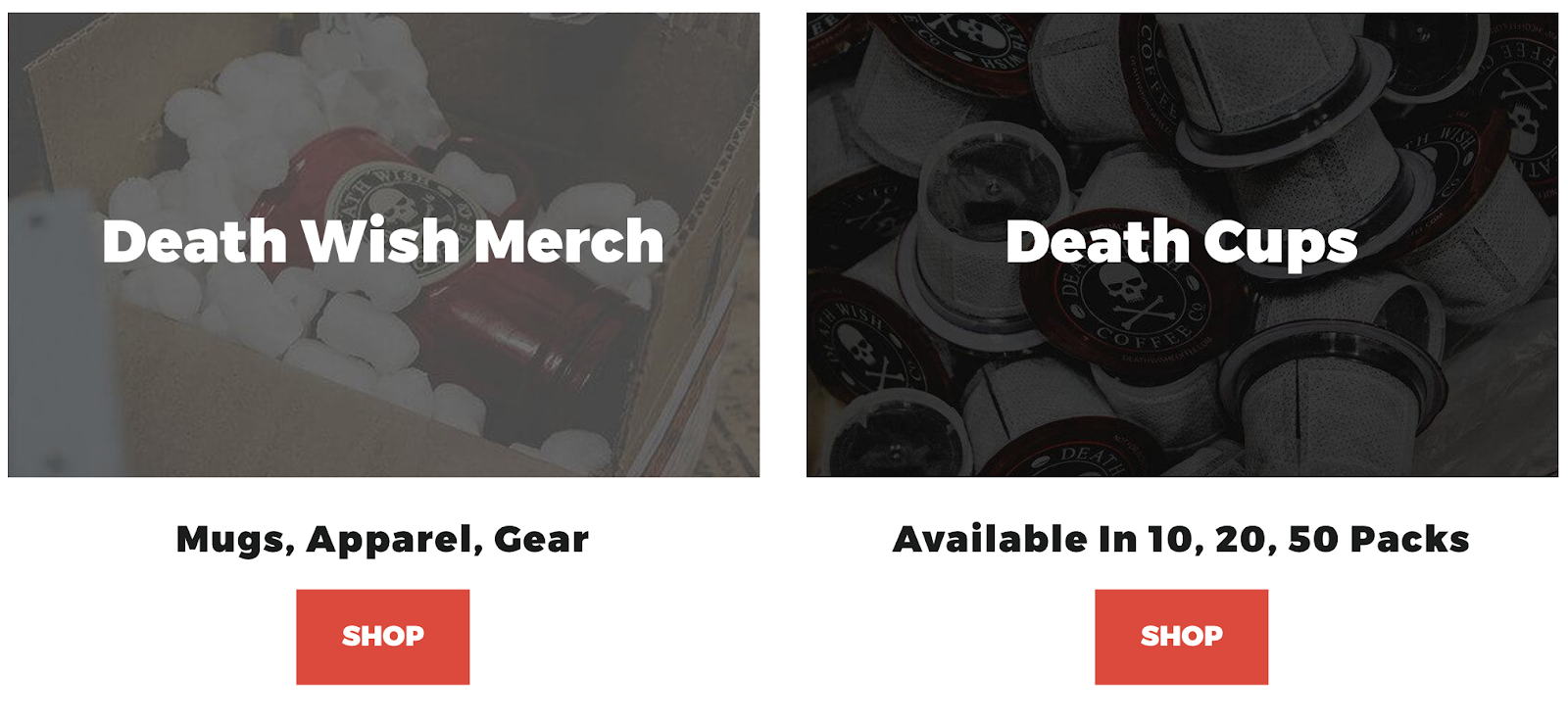
Social proof is also featured prominently on the blog with share counts displayed within each post:
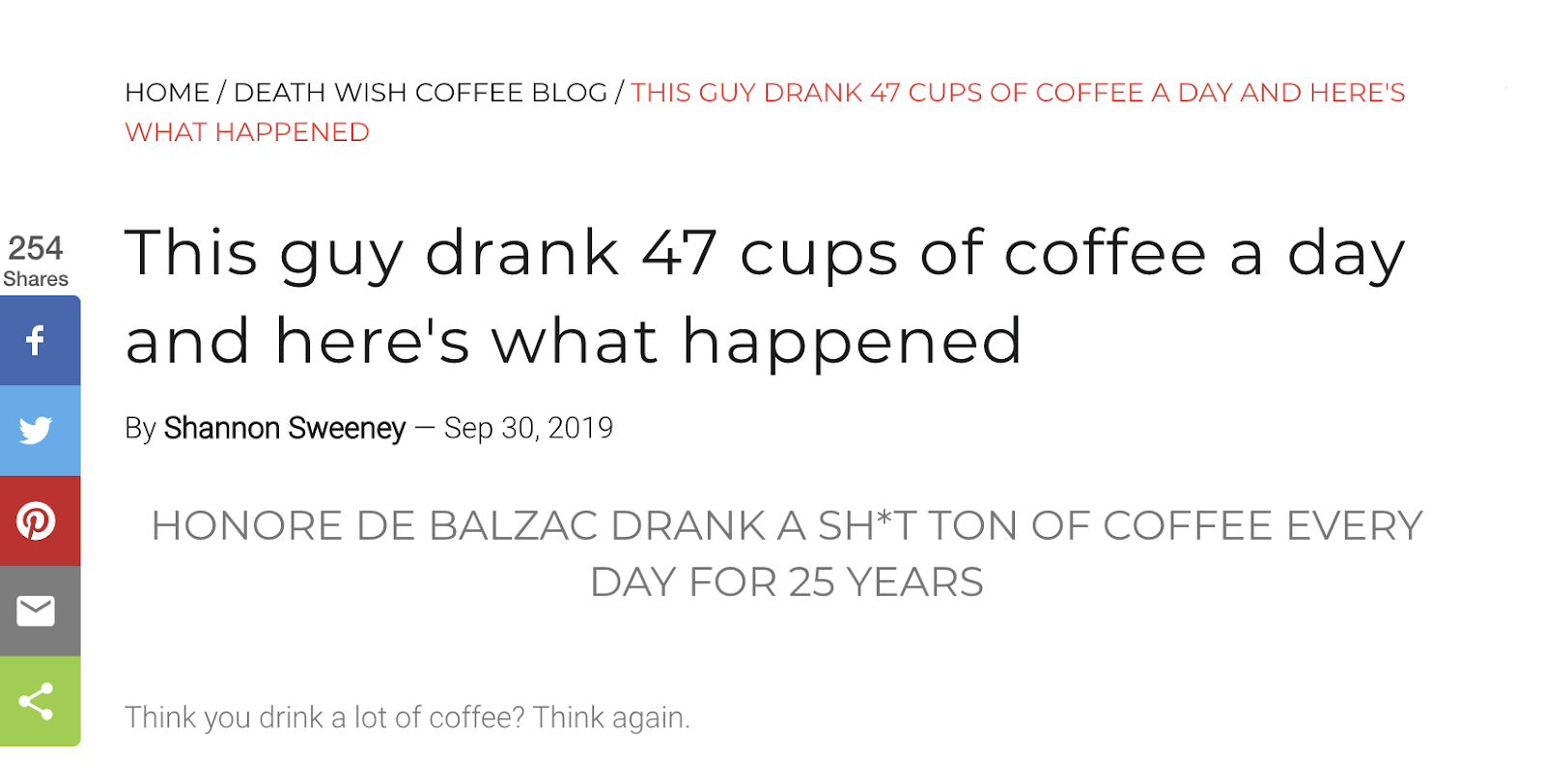
Including these figures help to build trust among new readers, letting them know that others have also read and shared this content. And this strategy appears to be paying off, as SimilarWeb estimates over 13% of traffic to Death Wish Coffee’s website comes from social media.
Some people prefer to listen to content and others enjoy videos. With that, Death Wish Coffee also uses its blog as a place to share multimedia content.
For example, some blog posts are converted into videos and embedded within relevant posts:
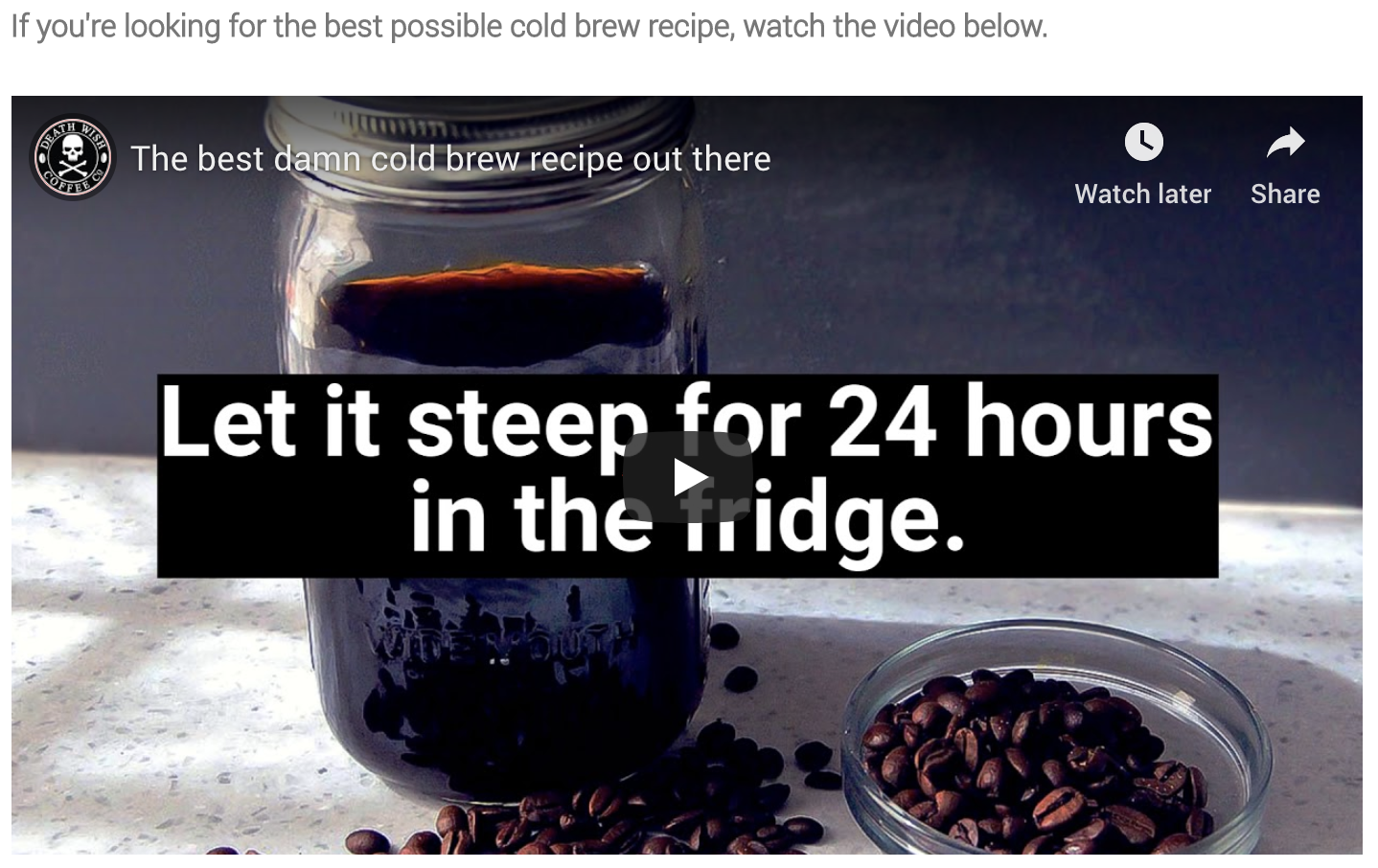
2. MVMT
Blog URL: https://www.mvmtwatches.com/blogs/the-mvmt
Key takeaway: Connect your website and social presence to drive sales.
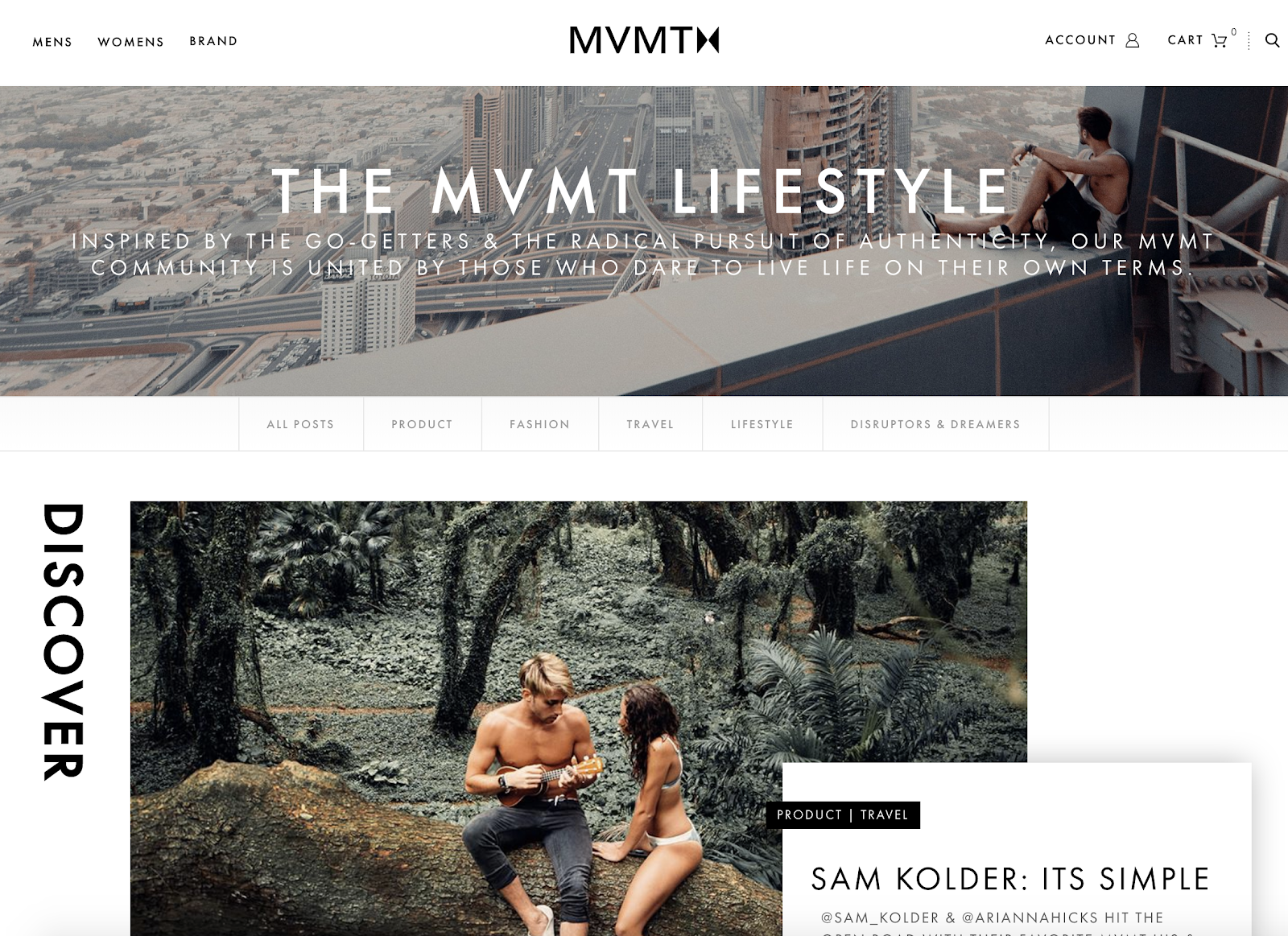
MVMT watches grew from zero to $60 million in sales in under four years, making it one of the world’s fastest-growing brands.[*]
Content has played a huge role in MVMT’s growth, helping to position the brand as a leader in millennial fashion focused on go-getters and people who want to live on their own terms.
It has grown an incredible following across social media:
-
Instagram: More than1.1 million followers.
-
Facebook: More than 3.6 million likes.
-
YouTube: More than 11.5 million views.
And its blog is an extension of its social media presence.
The blog regularly features collaborations with social media influencers that feel a little like owned advertorials. Posts feel more like native advertising on MVMT’s website than what most of us think of when we picture a blog post.
For example, check out this collaboration post between MVMT and influencers @sam_kolder and @ariannahicks:

MVMT also does a great job of keeping its brand consistent across the blog, its store, and social media content.
Notice how its aesthetic feels the same across Instagram:
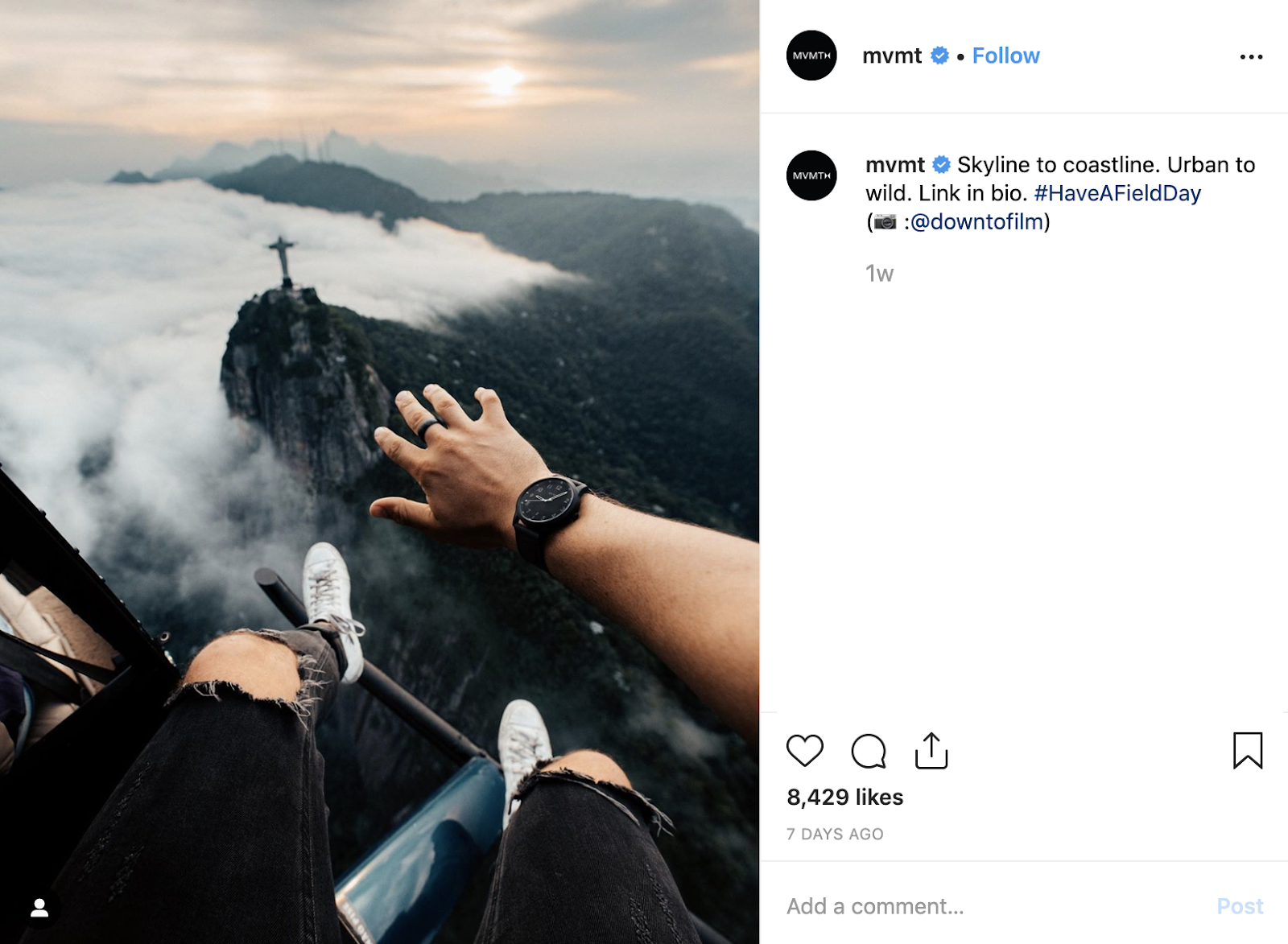
And its blog:
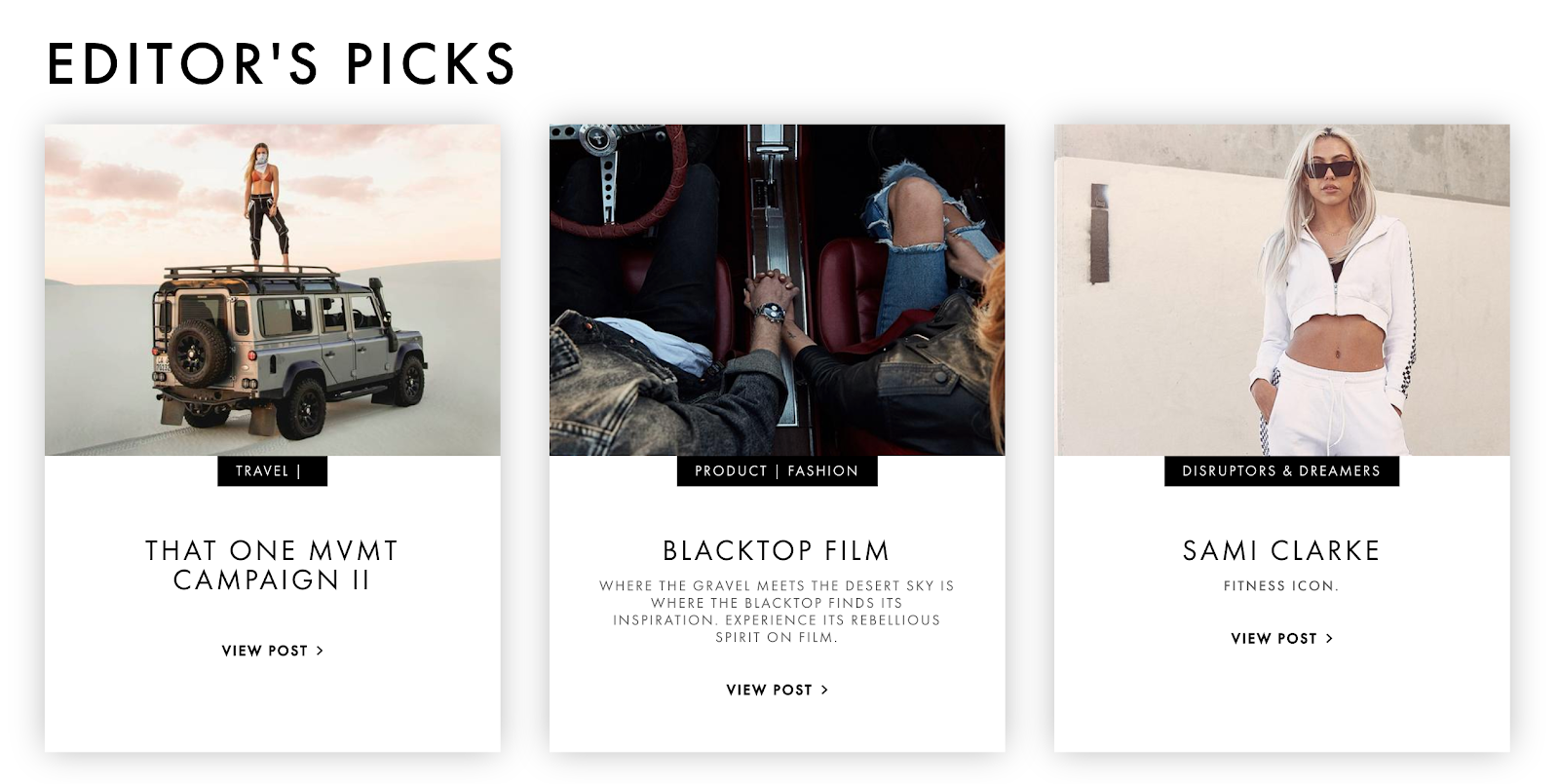
As social media is so important to MVMT, it includes a shoppable Instagram feed at the bottom of its blog homepage:

Clicking on an image from its Instagram feed takes you to a pop-up enabling you to shop the look featured in that image:
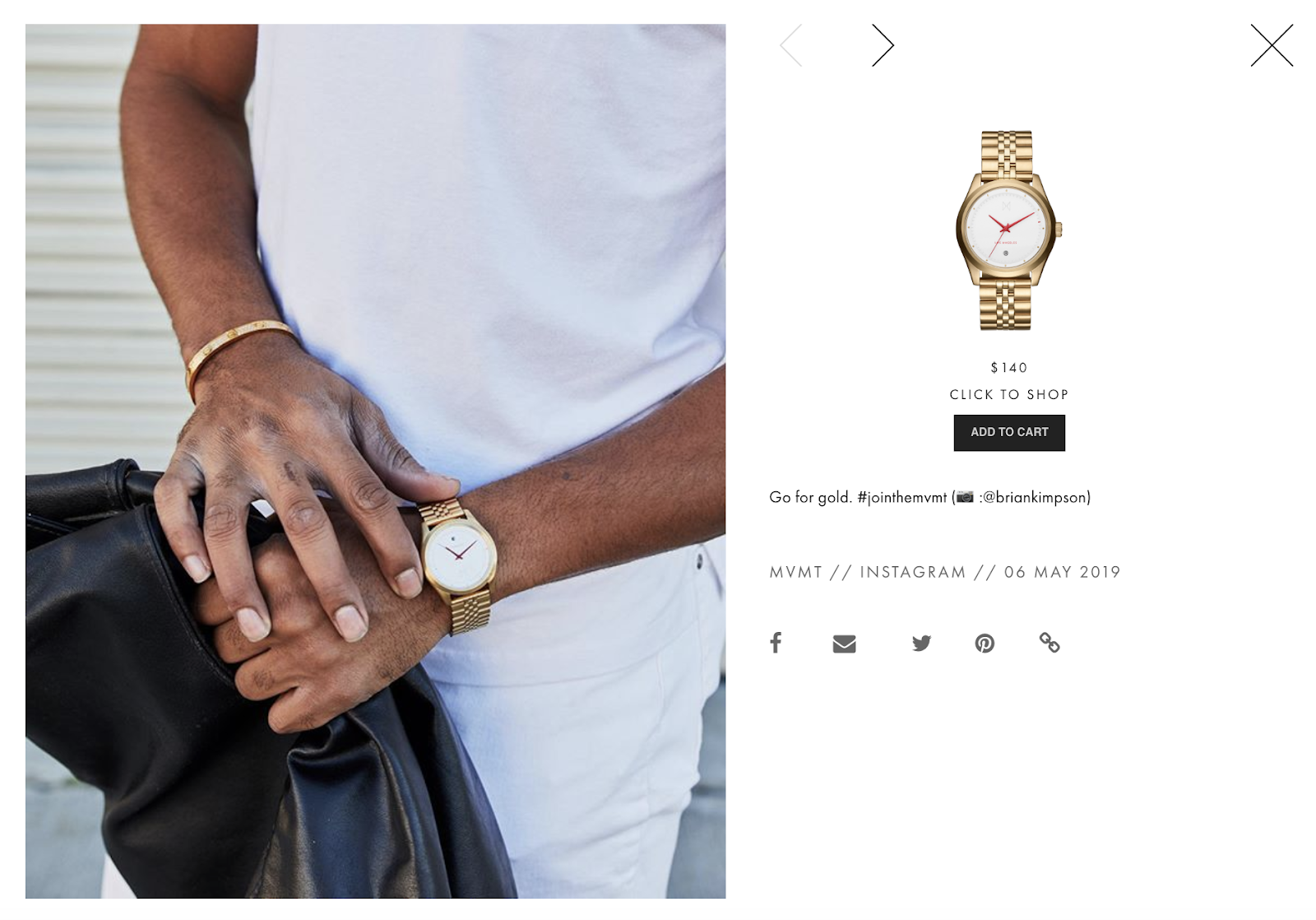 Discover app MVMT uses to do this here.
Discover app MVMT uses to do this here.
3. Press
Blog URL: https://press-london.com/blogs/squeeze
Key takeaway: Work with experts to create unique, trustworthy content.

Press sells healthy food products and juices. Its blog — The Squeeze — is a key part of its marketing strategy.
Content from the blog is even featured on the Press homepage:
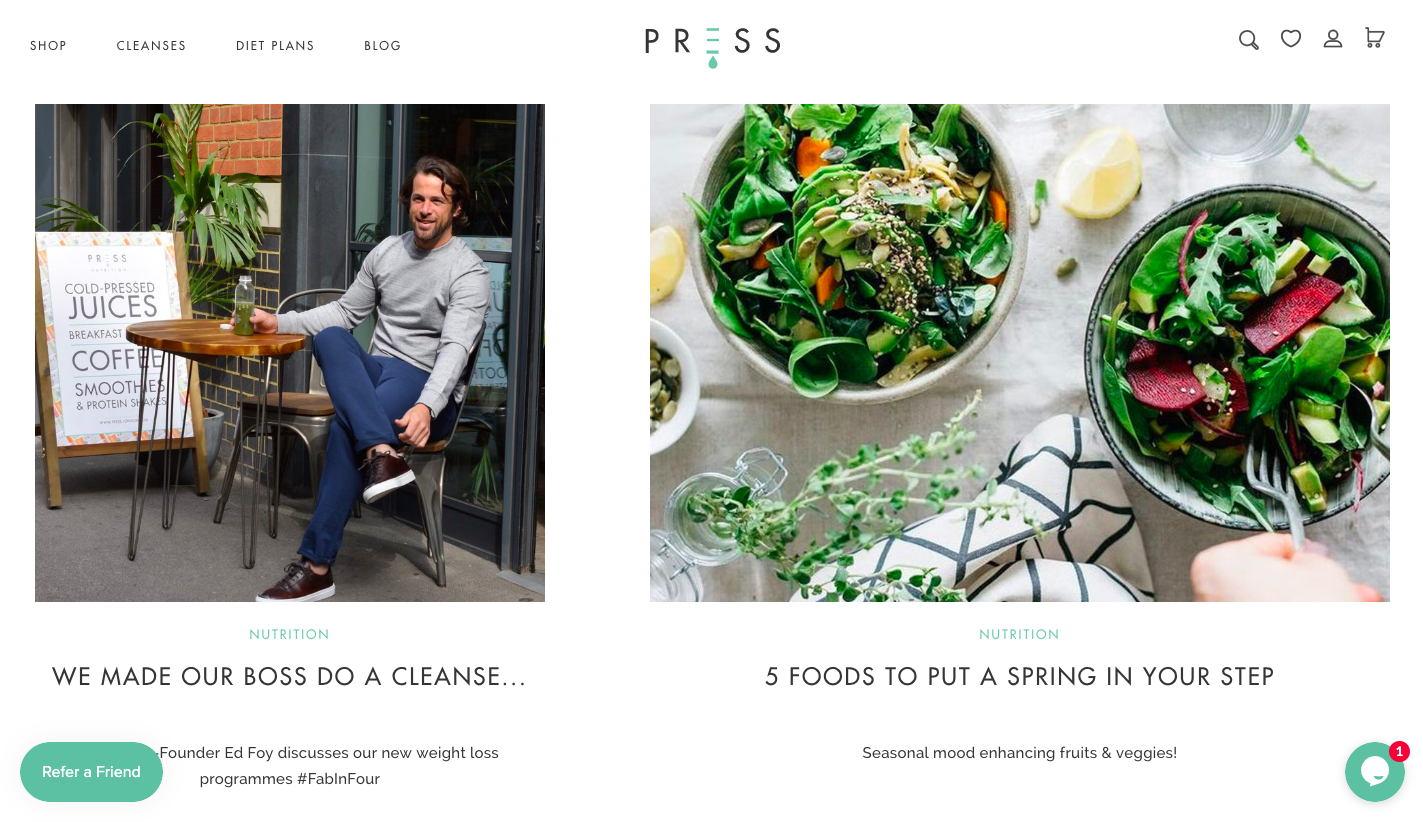
The Squeeze focuses on healthy lifestyle content — sharing recipes, fitness tips, mindfulness, and more. It aims to encourage readers to be the best version of themselves.
The blog follows several best practices, including internal linking between posts and recommended content at the end of each post:
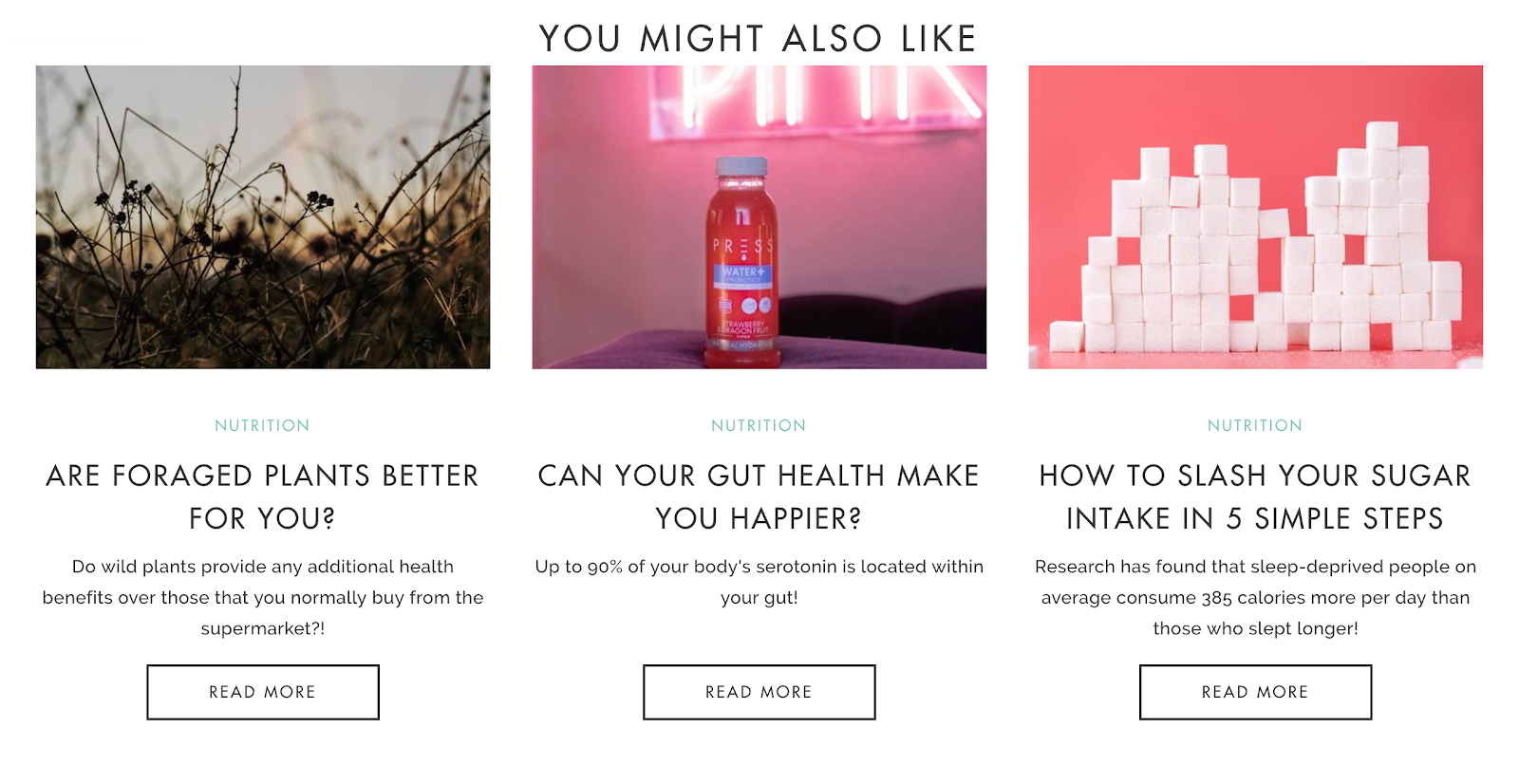
Press has clearly put plenty of thought into the user experience and how it can drive sales from the blog too. It shows your recently viewed products underneath each post to help drive you back to the store to complete a purchase.
This is a great example of personalization, as it is showing visitors products Press knows they have some interest in:
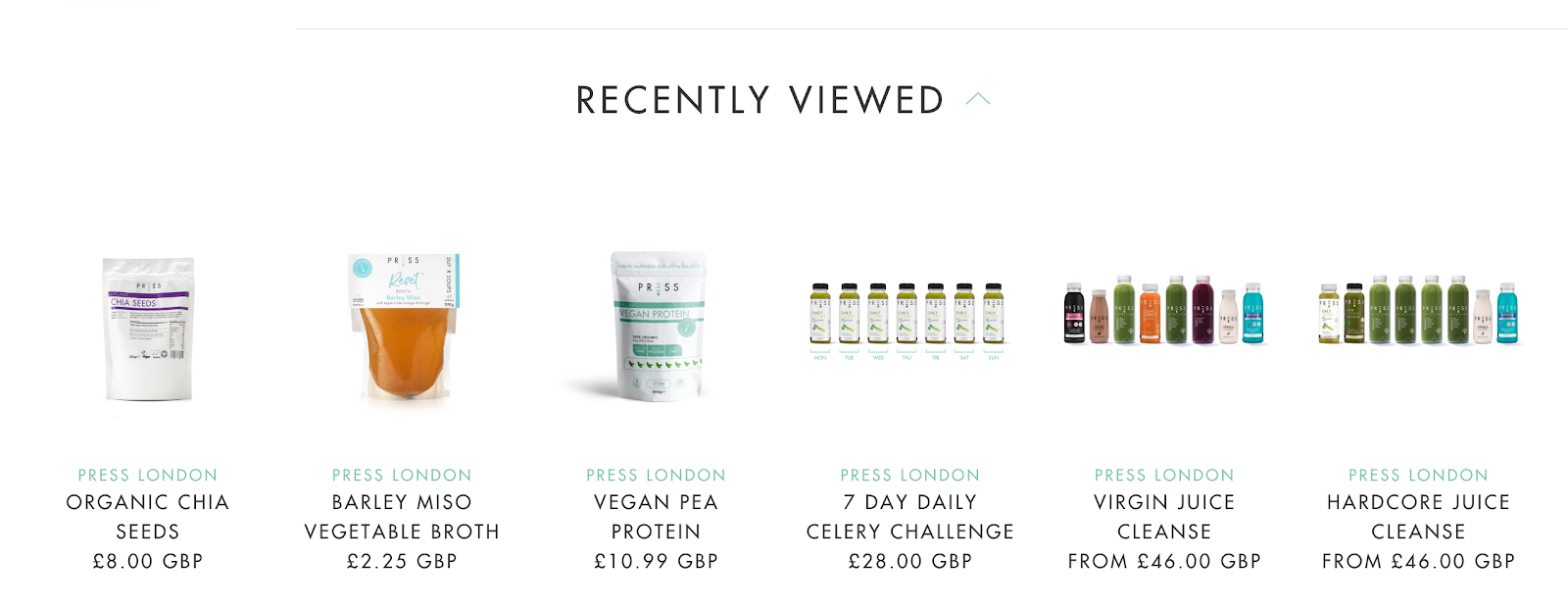
Find out which app Press uses to do this here.
Press also highlights products in the right sidebar of every page under the feature image:
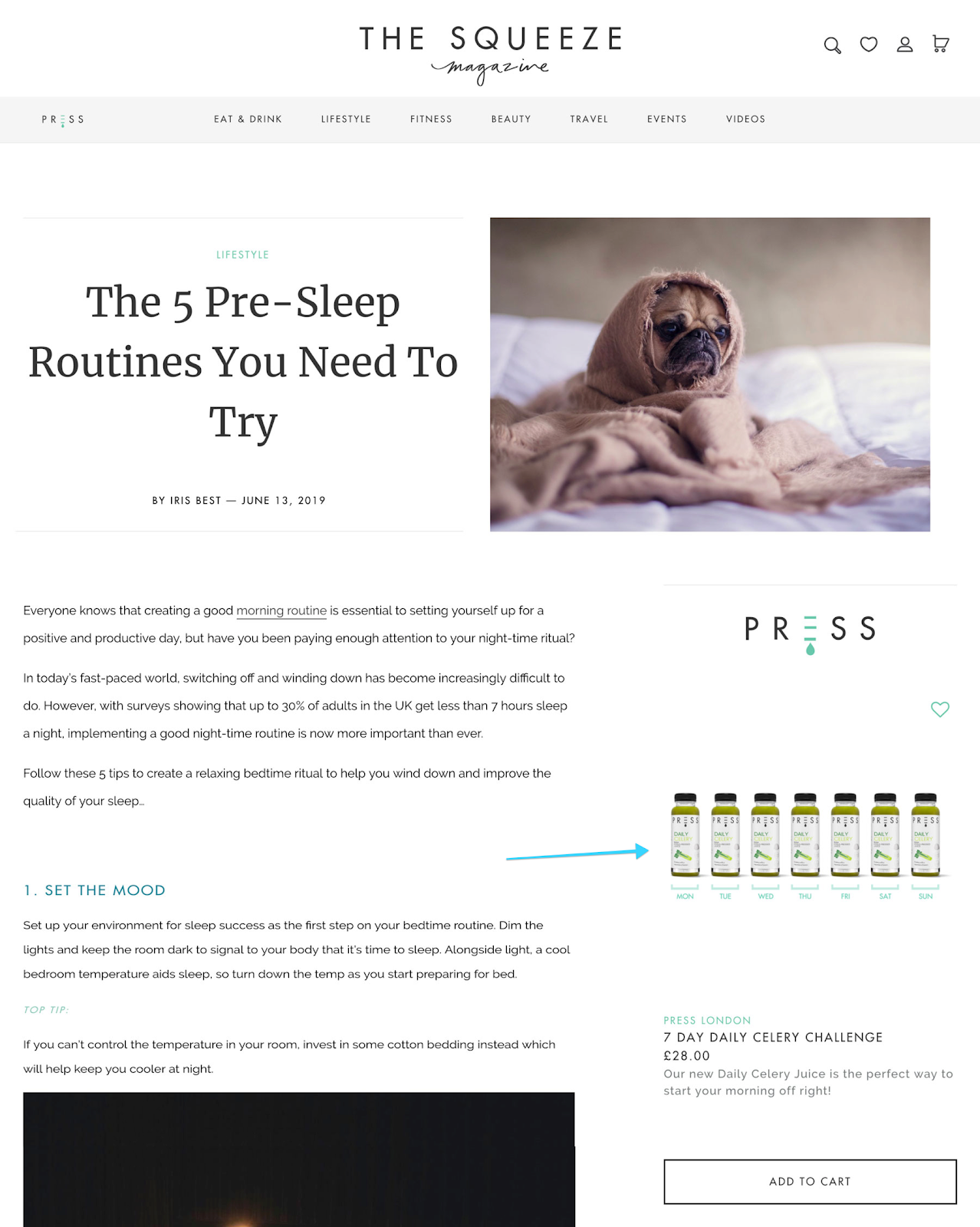
And uses product photos in feature images where relevant:
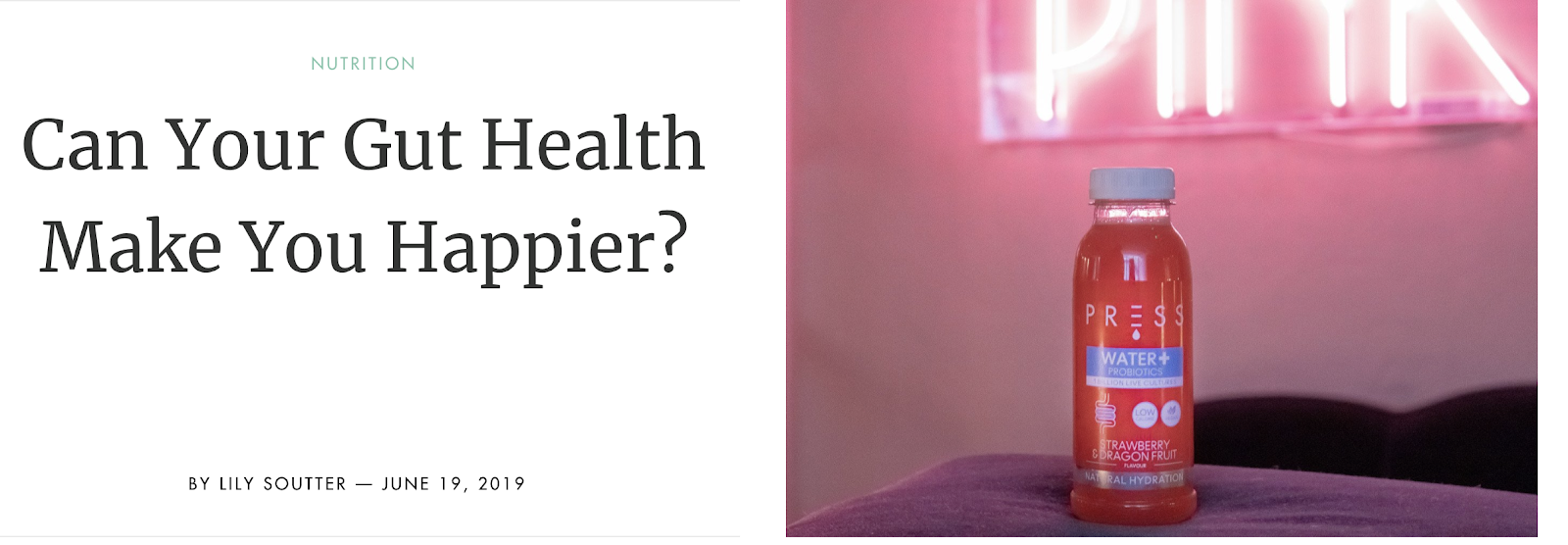
No matter where you are on the Press blog, you’re always one click away from adding a product to your basket.
The content Press publishes is also incredibly well-researched and often cites credible reports and studies to back up what it’s saying:
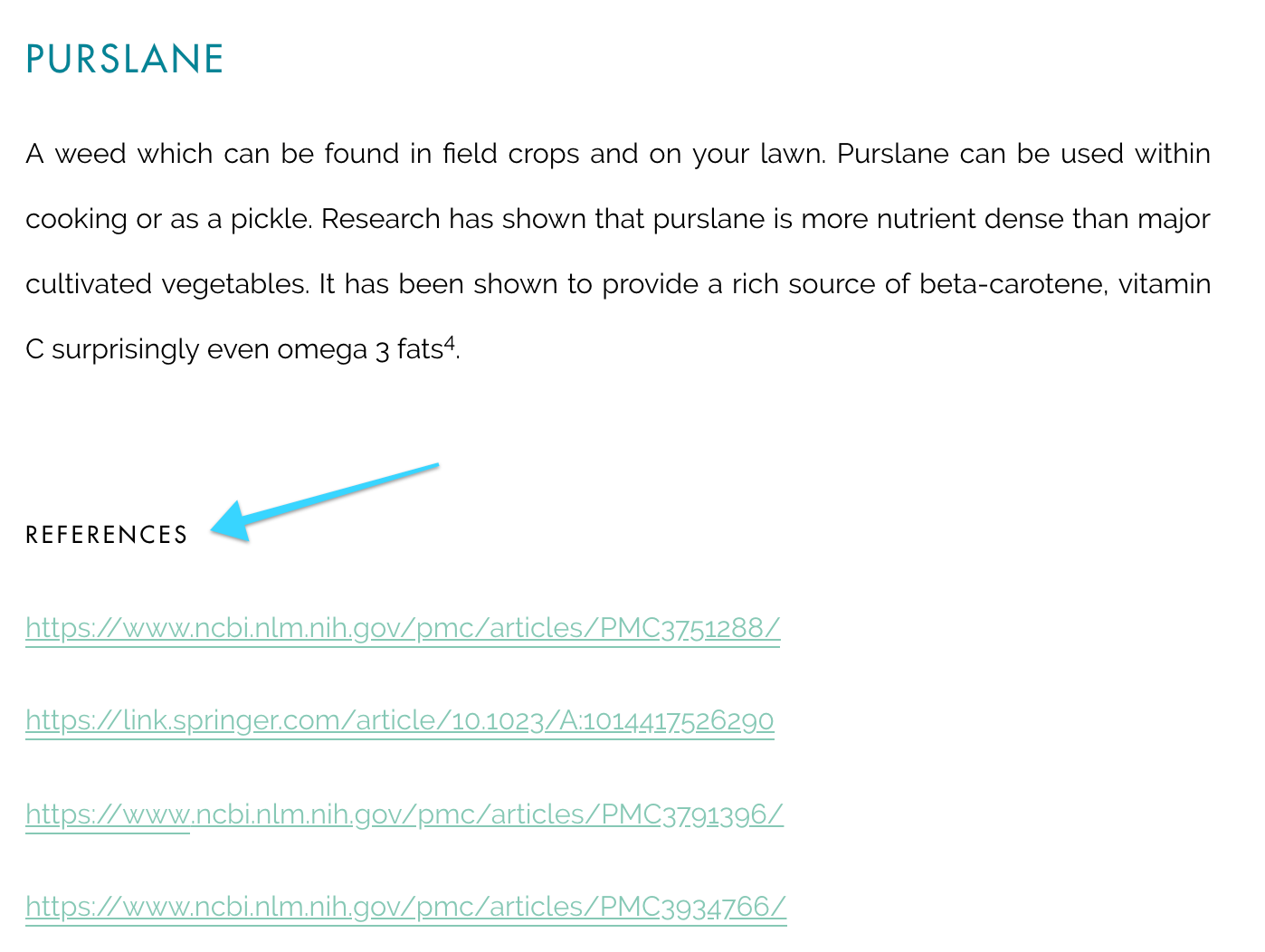
They also hire industry experts to create content for them:
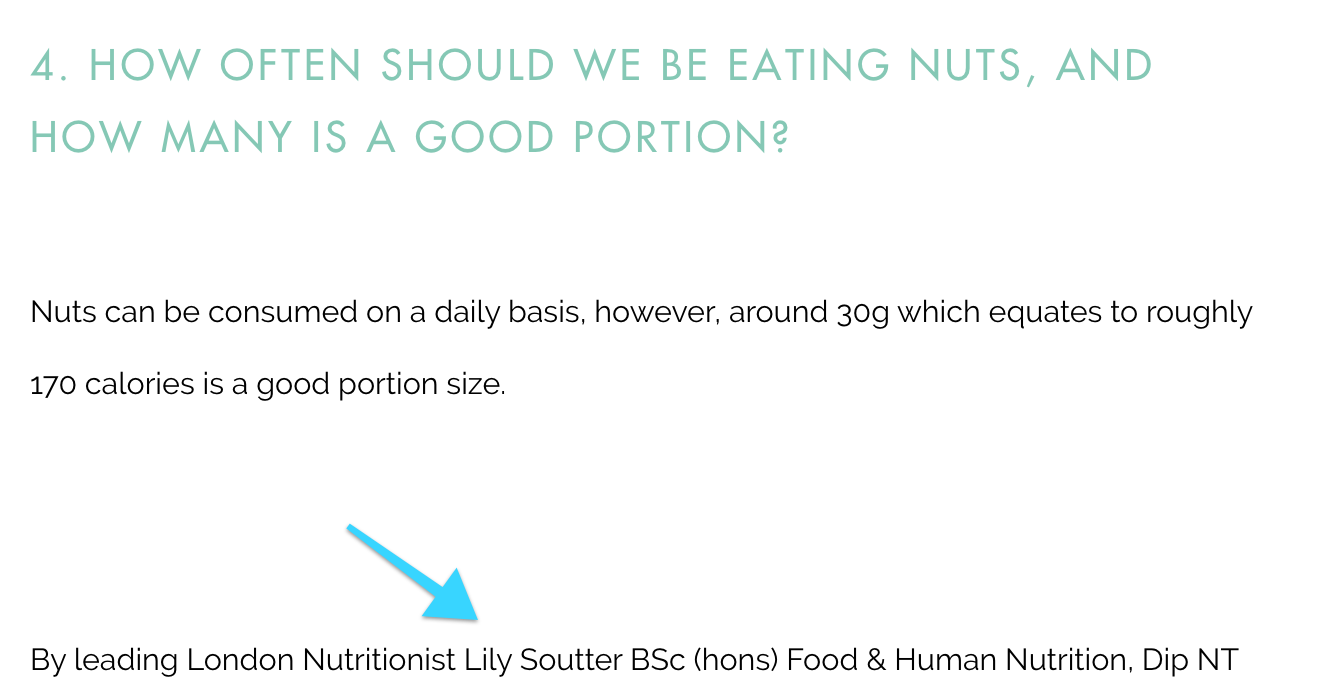
4. Beardbrand
Blog URL: https://www.beardbrand.com/blogs/urbanbeardsman
Key takeaway: Create content with your customers and find unique ways to capture leads.
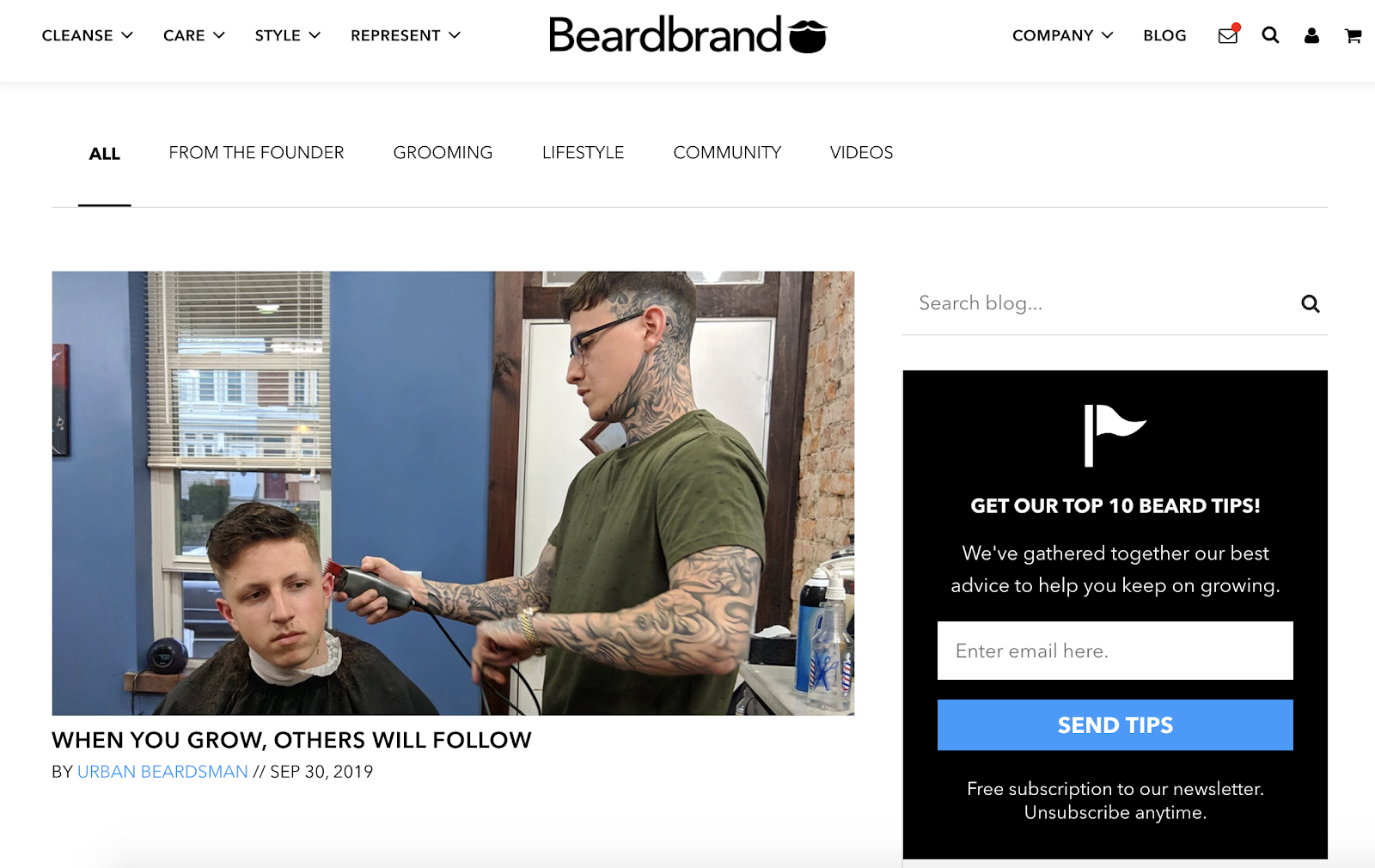
Beardbrand produces and sells products to help men to cleanse, care for, and style their facial hair. It also produces a range of t-shirts and accessories for its biggest fans.
Urban Beardsman — the Beardbrand blog — features plenty of beard-related content as well as posts on style, grooming, travel, community, and insights on the business from the Beardbrand founder.
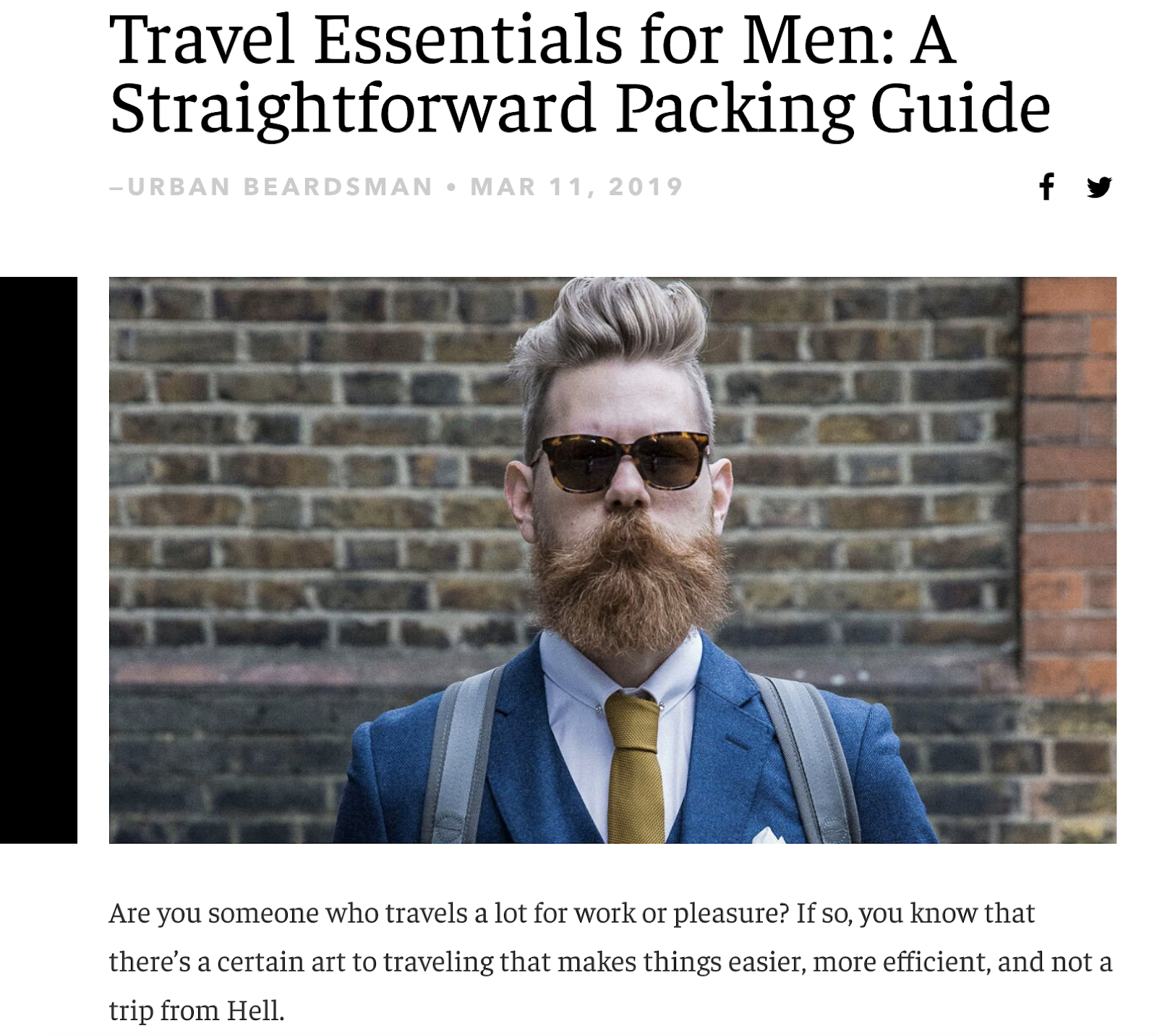
The content Beardbrand publishes on its blog is very useful to its “Urban Beardsman” audience.
Posts like “Beard Brush vs. Beard Comb Comparison: Which One Should You Use?” and “Travel Essentials for Men: A Straightforward Packing Guide’” provide readers with incredible detail on how to take care of their beards.
It also falls very much in line with the company mission: To Make Men Look & Feel Awesome.
But what makes it really stand out is its focus on community. Beardbrand uses its blog to share stories from customers on topics like grooming as well as broader topics like confidence and healthy eating.
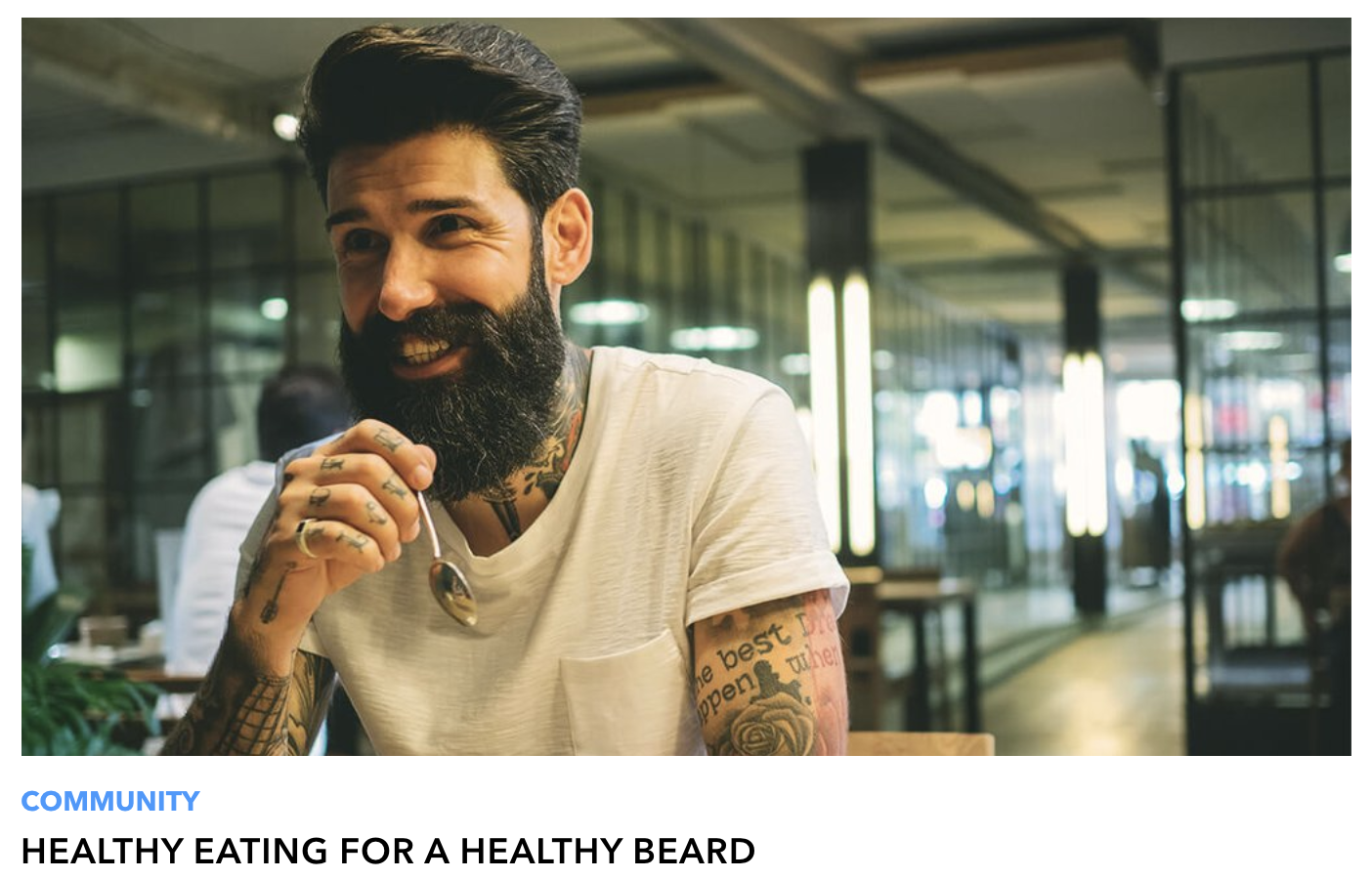
By bringing its community into its content, it creates brand ambassadors who will likely share their content and talk about Beardbrand to friends.
Much like Death Wish Coffee, Beardbrand has also had some success growing organic search traffic to its blog. Ahrefs estimates it receives just over 75k visits per month from Google.
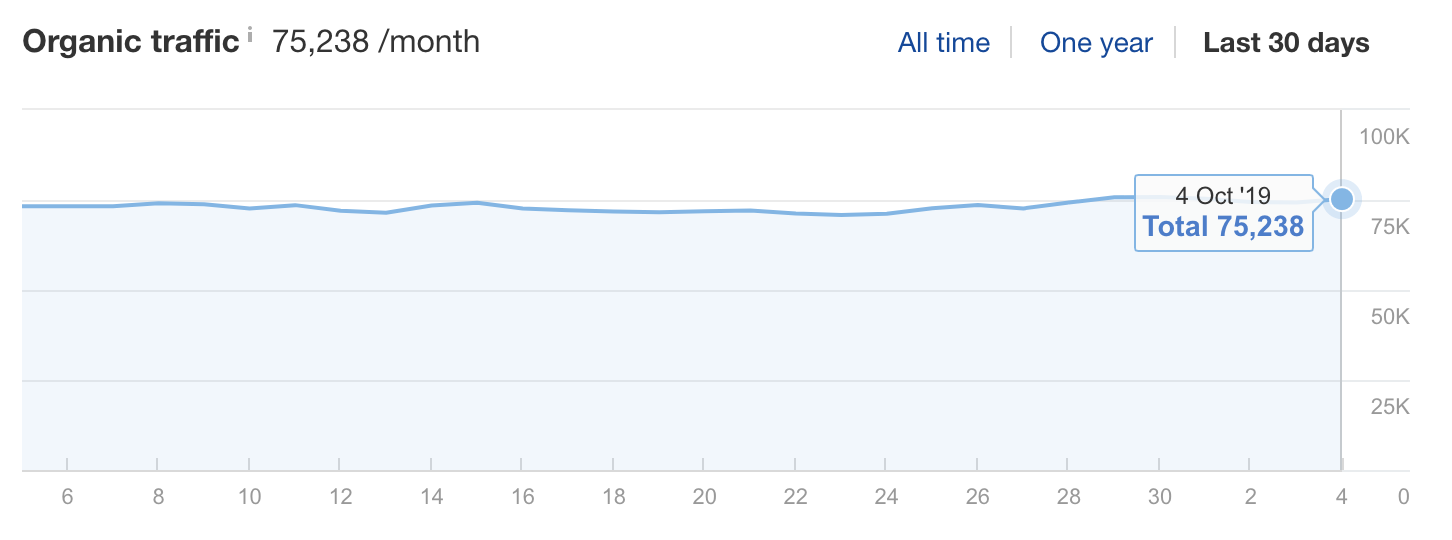
Its post on “How to Grow a Beard” brings it nearly 10,000 visits per month alone and features in-content CTAs to drive visitors to Beardbrand products that will help them to grow their beard:
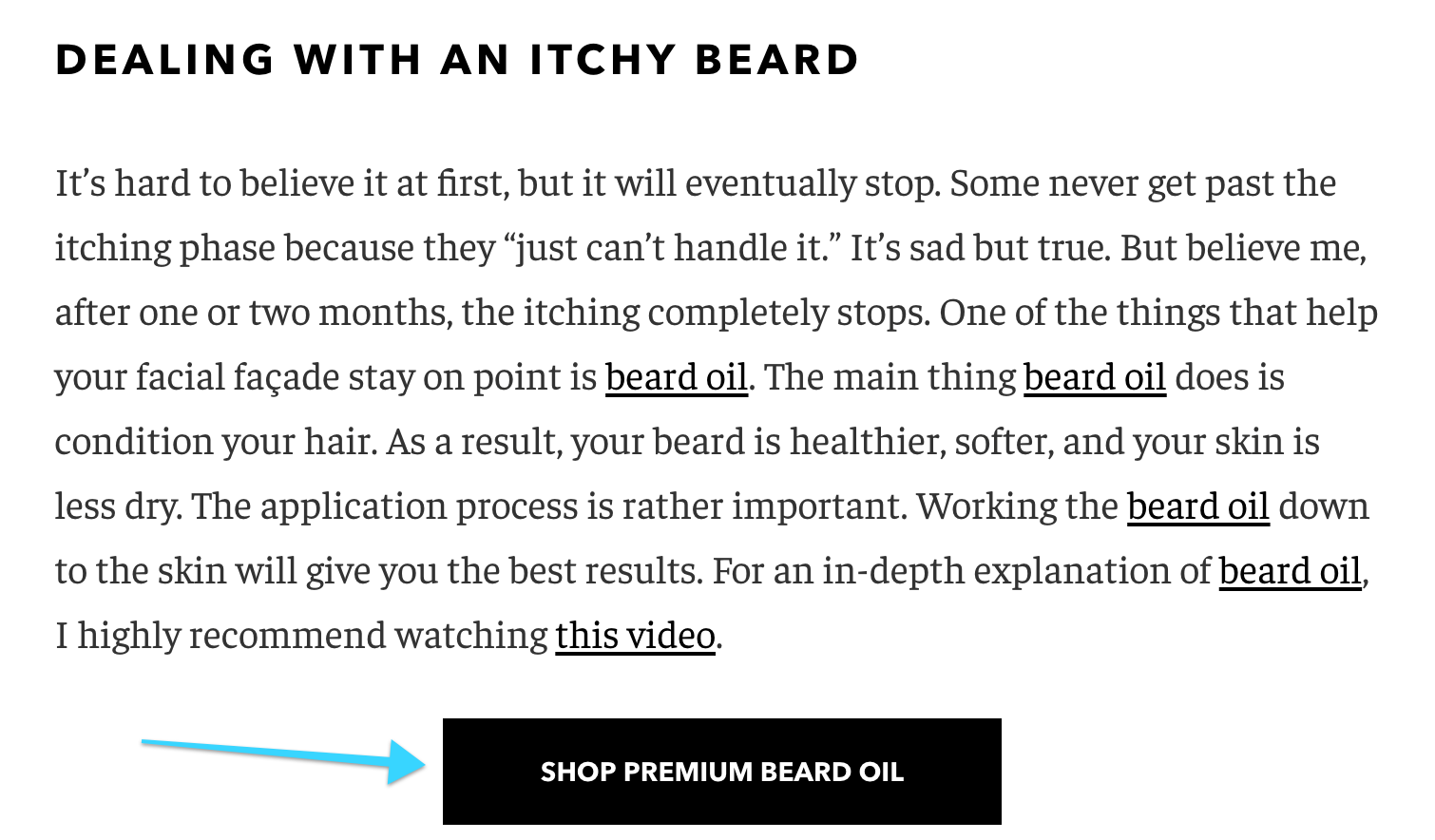
Beardbrand has also had a ton of success with its interactive beard style quiz:[*]
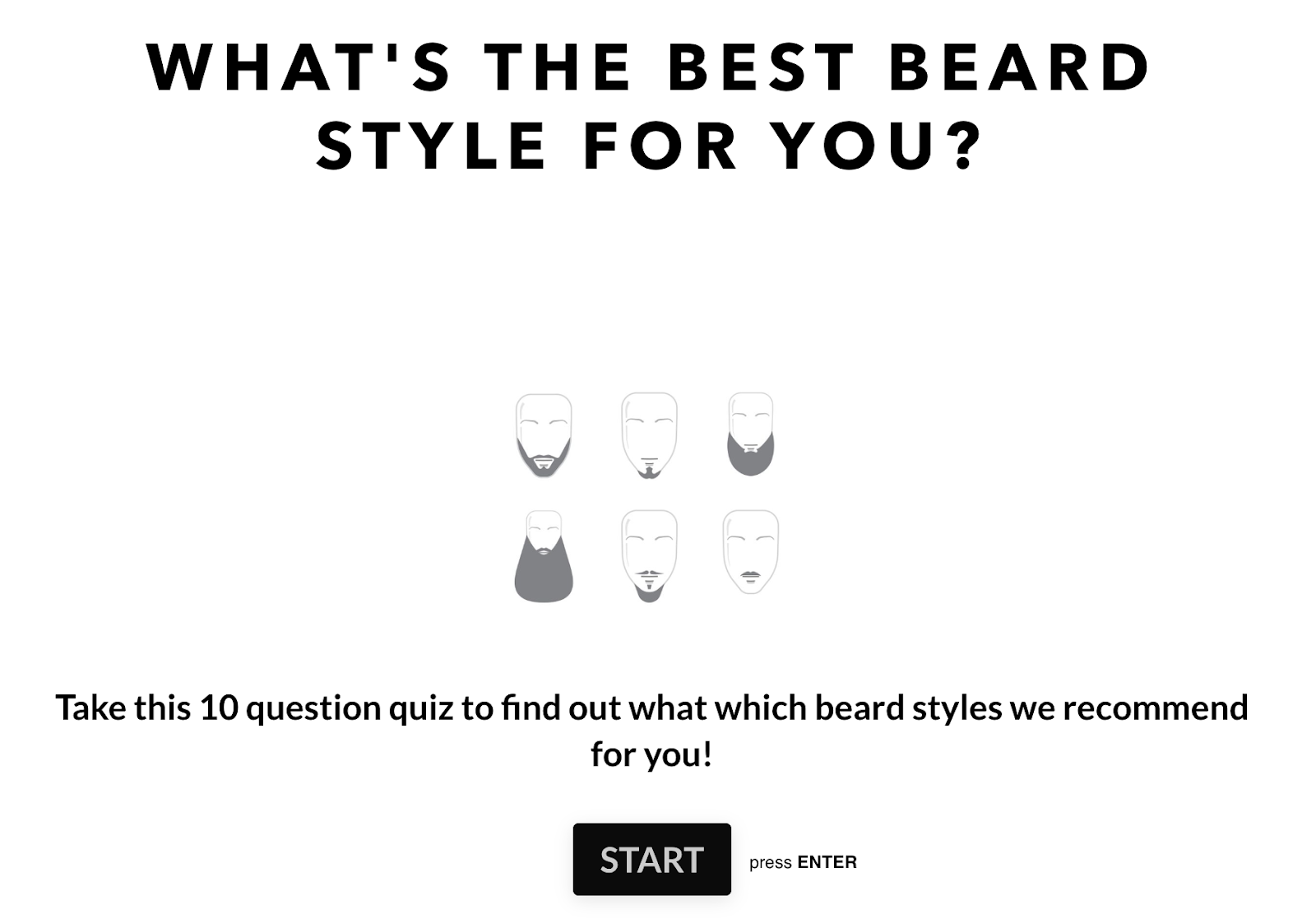
The quiz acts as a lead capture mechanism for the business by offering everyone who participates the chance to sign up to its mailing list:
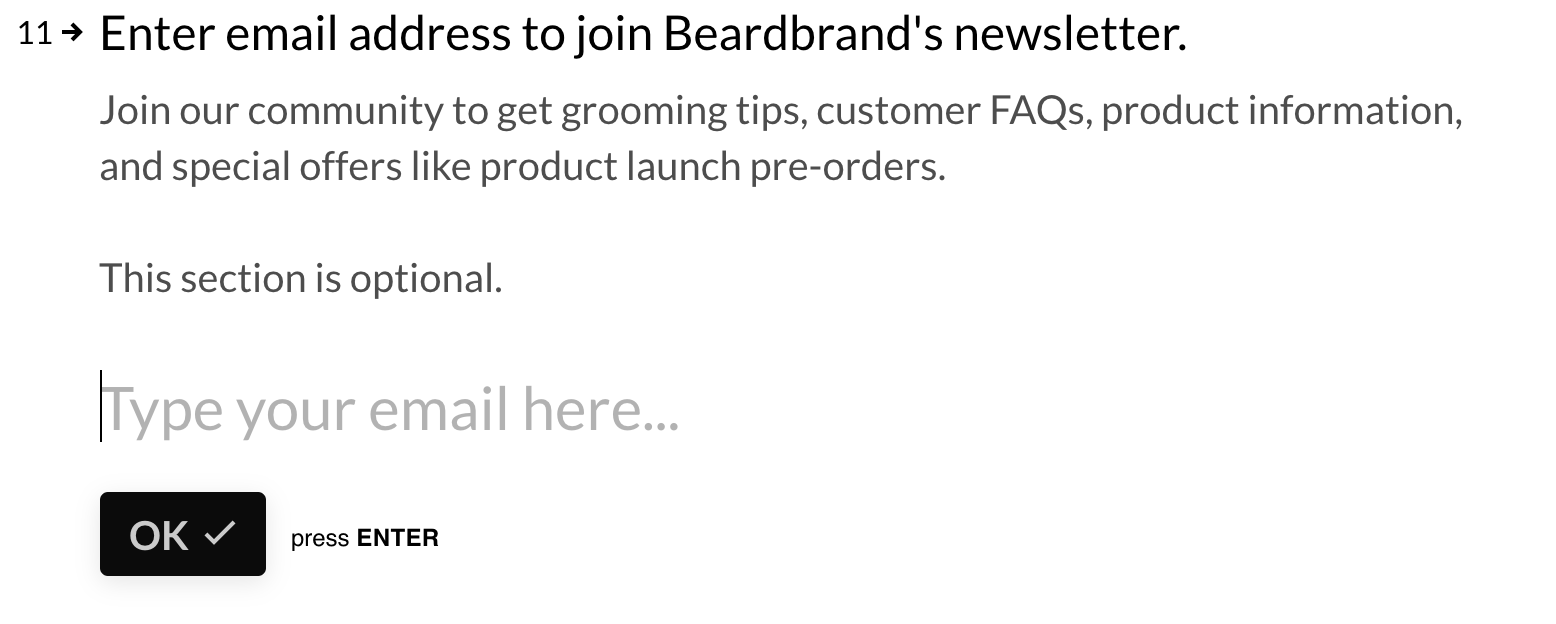
To encourage blog readers to take the quiz, it’s featured in the sidebar and remains in view — even when scrolling — for as long as the reader is on the blog:
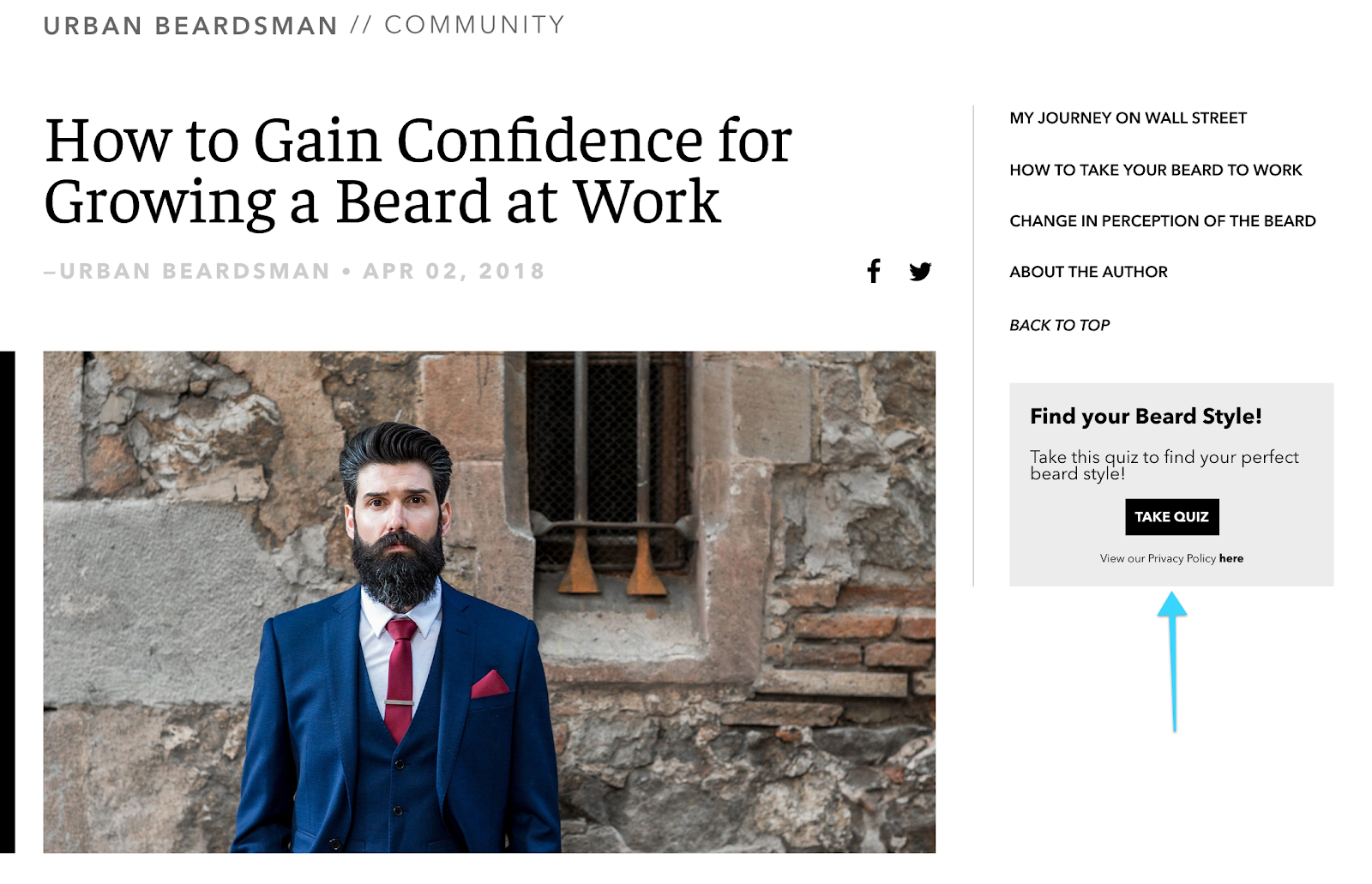
5. Luxy Hair
Blog URL: https://www.luxyhair.com/blogs/hair-blog
Key takeaway: Focus on SEO to generate traffic.
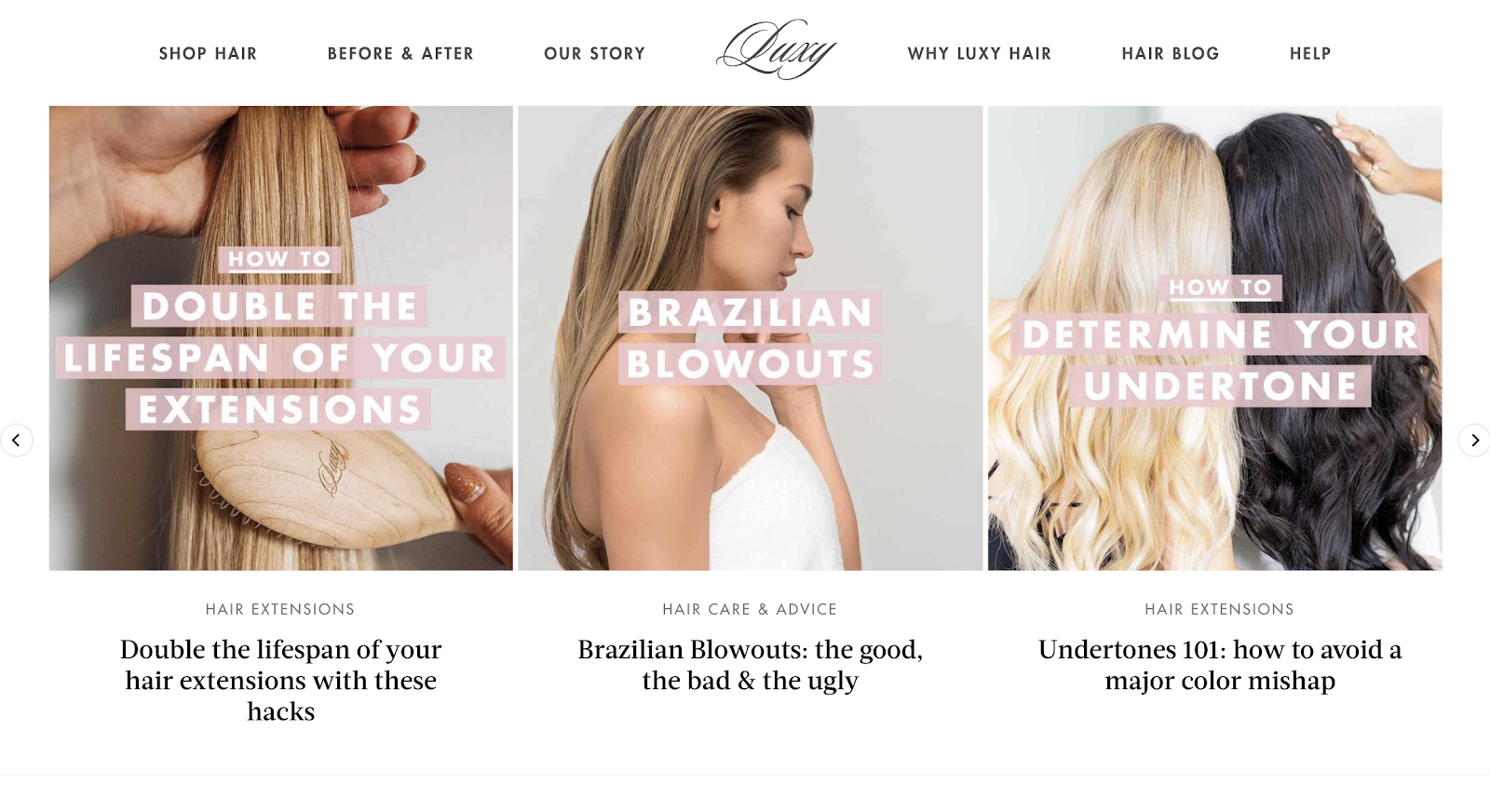
Luxy Hair sells clip-in hair extensions, and its blog is focused on hairstyles, care, and tutorials.
The brand’s focus on creating useful, highly engaging content has helped it to generate over 225,000 visitors per month from organic search results:
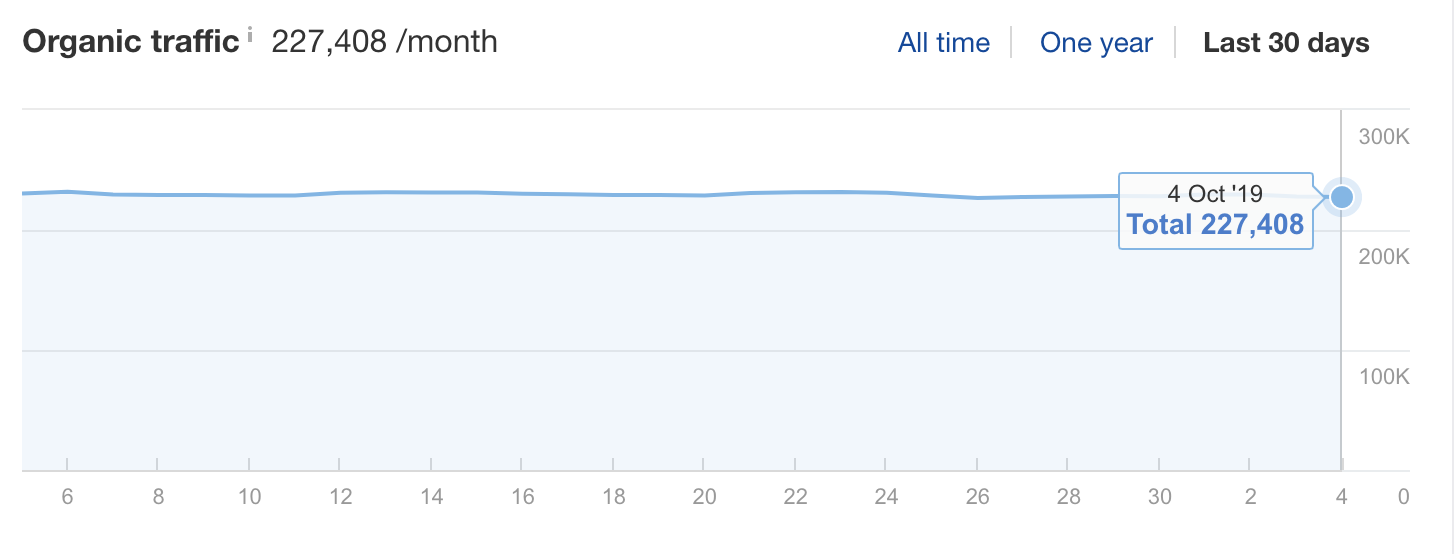
Some posts are nabbing featured snippets on Google:
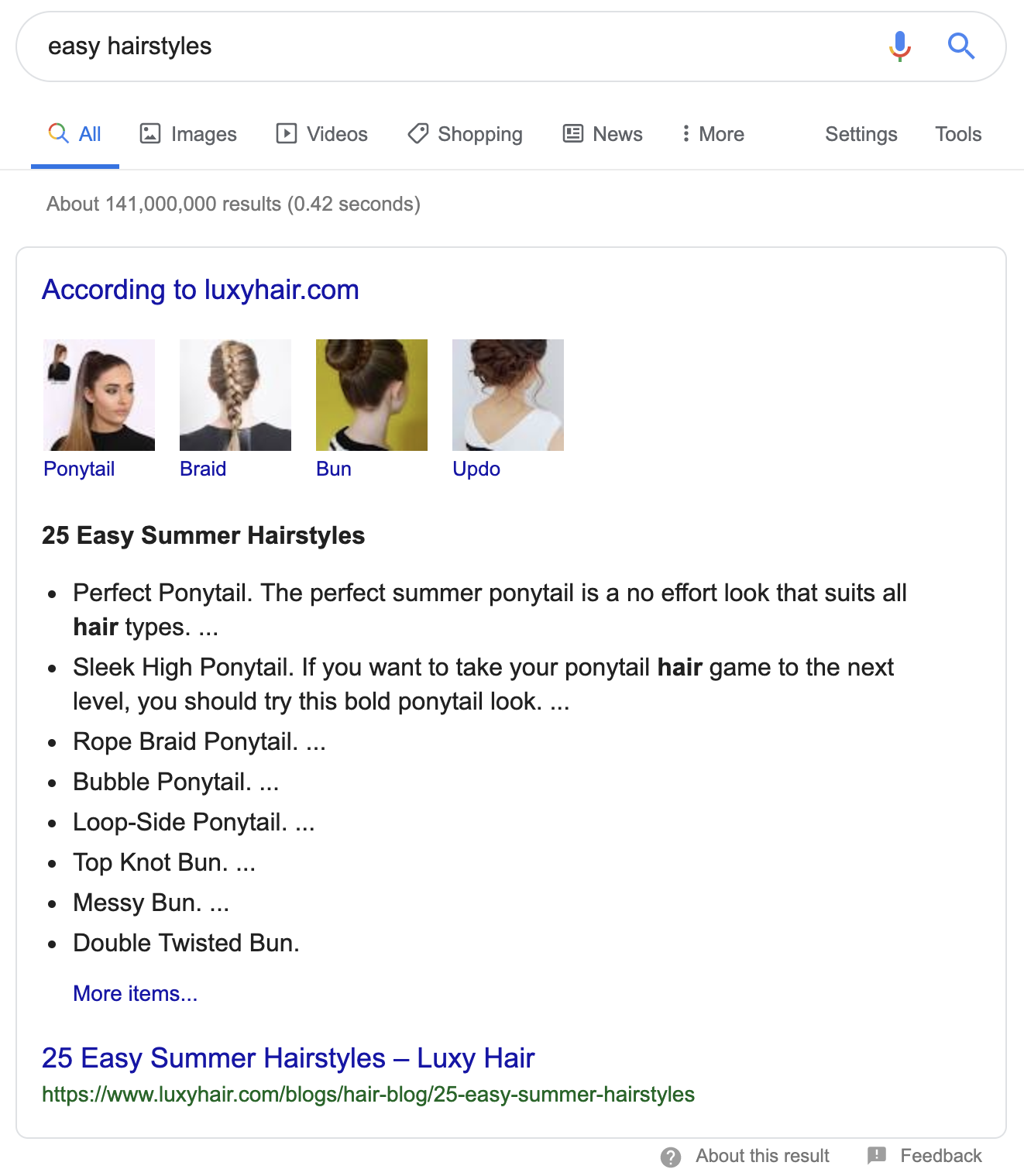
Once a visitor clicks from a search engine to Luxy Hair’s blog, they are immediately immersed in high-quality content, featuring videos from Luxy’s YouTube channel:
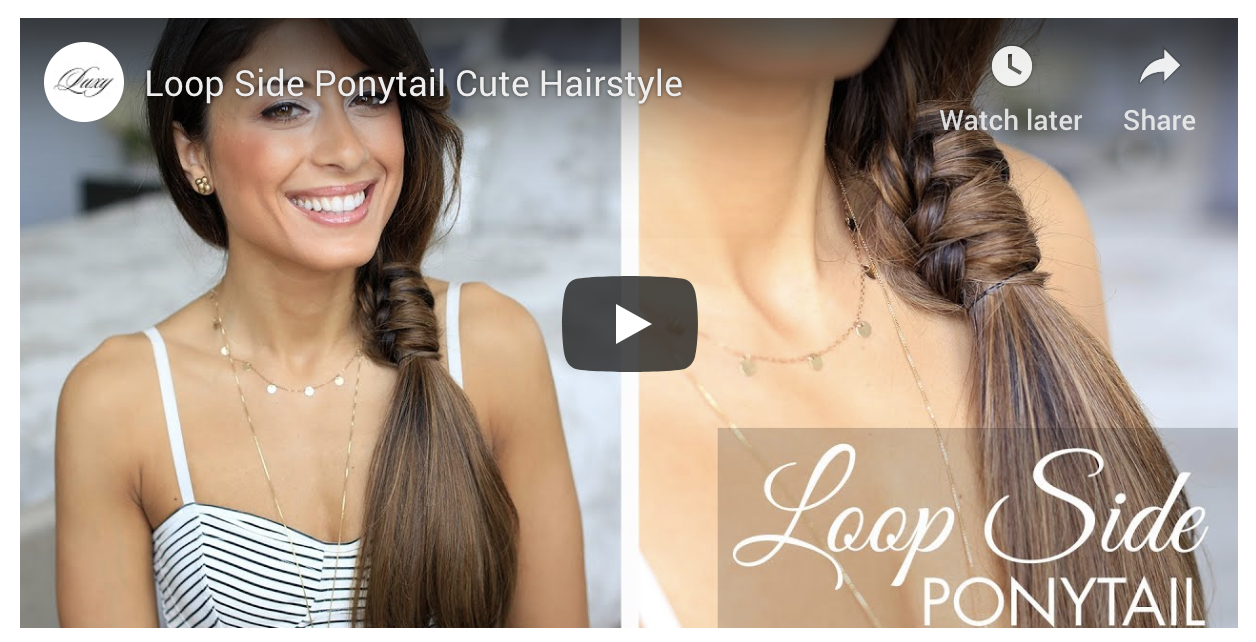
And opportunities to buy its products:
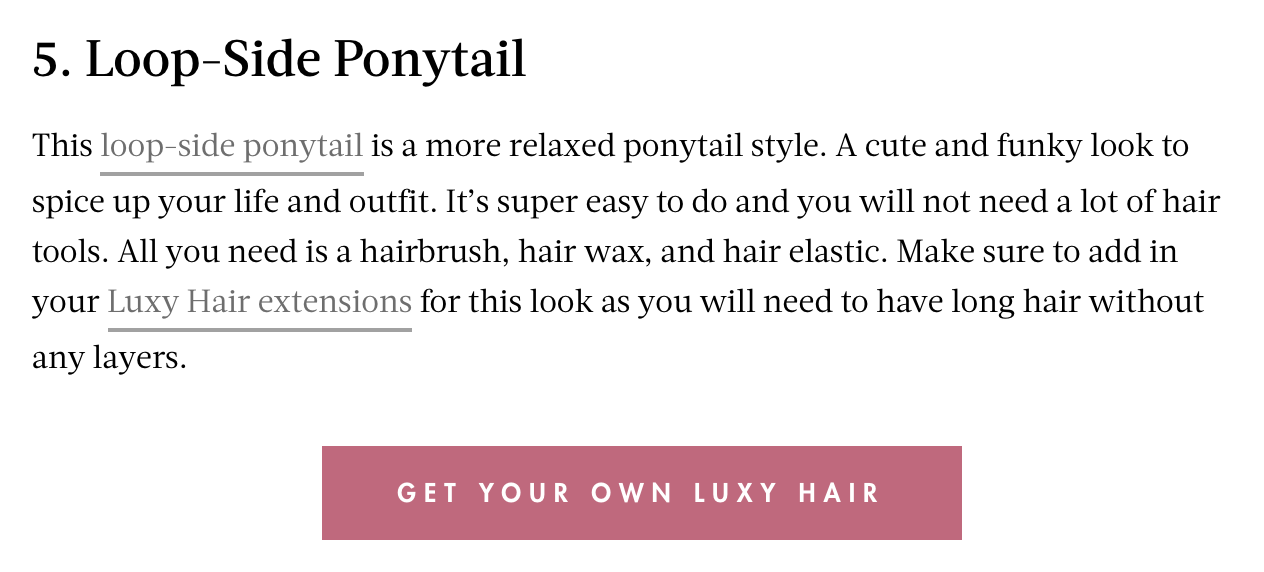
It also has a heavy focus on internal links between content (great for SEO):

As a hair extension company, Luxy ensures its imagery focuses on hair, rather than the models within the photos. It uses plenty of side profile images and ensures the emphasis is always on the hair:
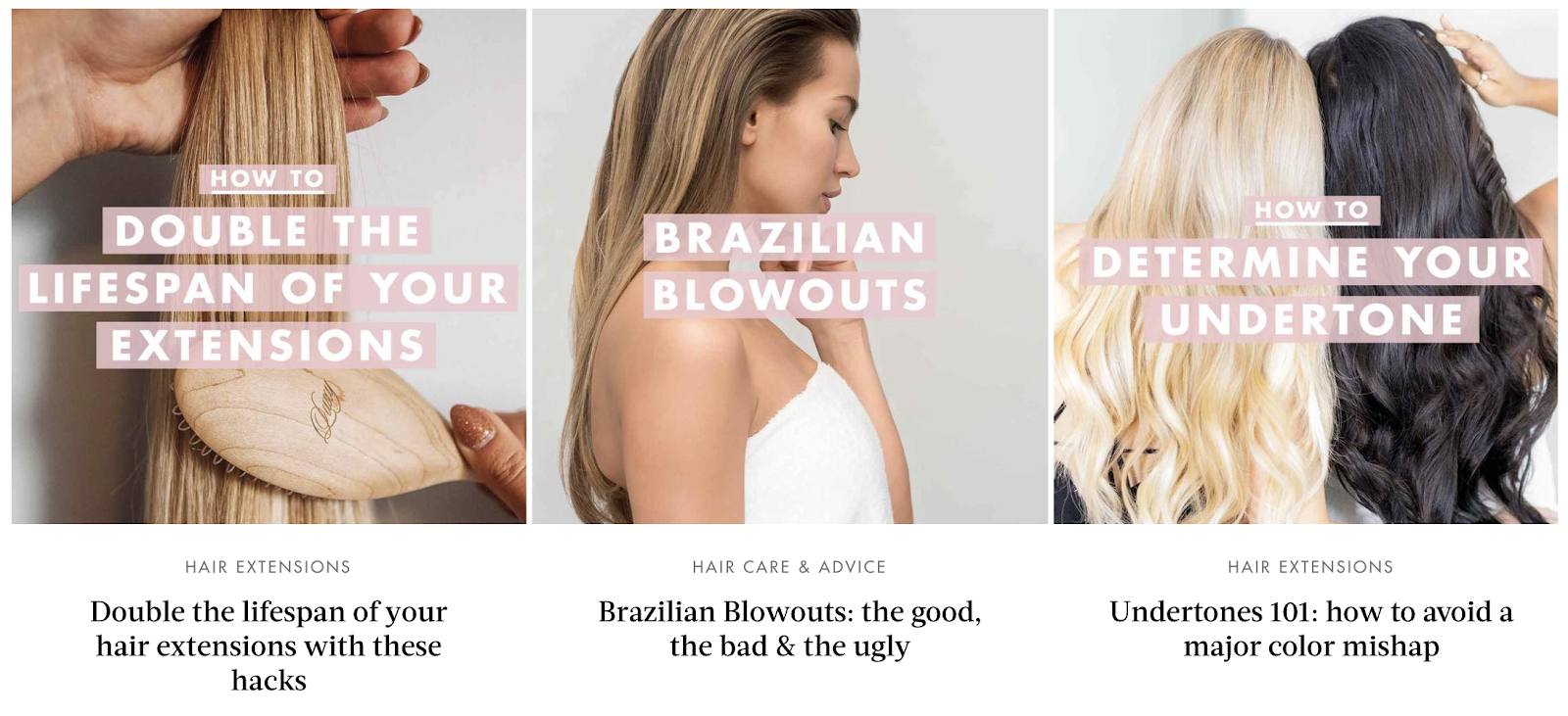
The blog homepage is also extremely easy to navigate, giving visitors the chance to select a specific topic to dive into as well as the latest and most popular posts on the site:
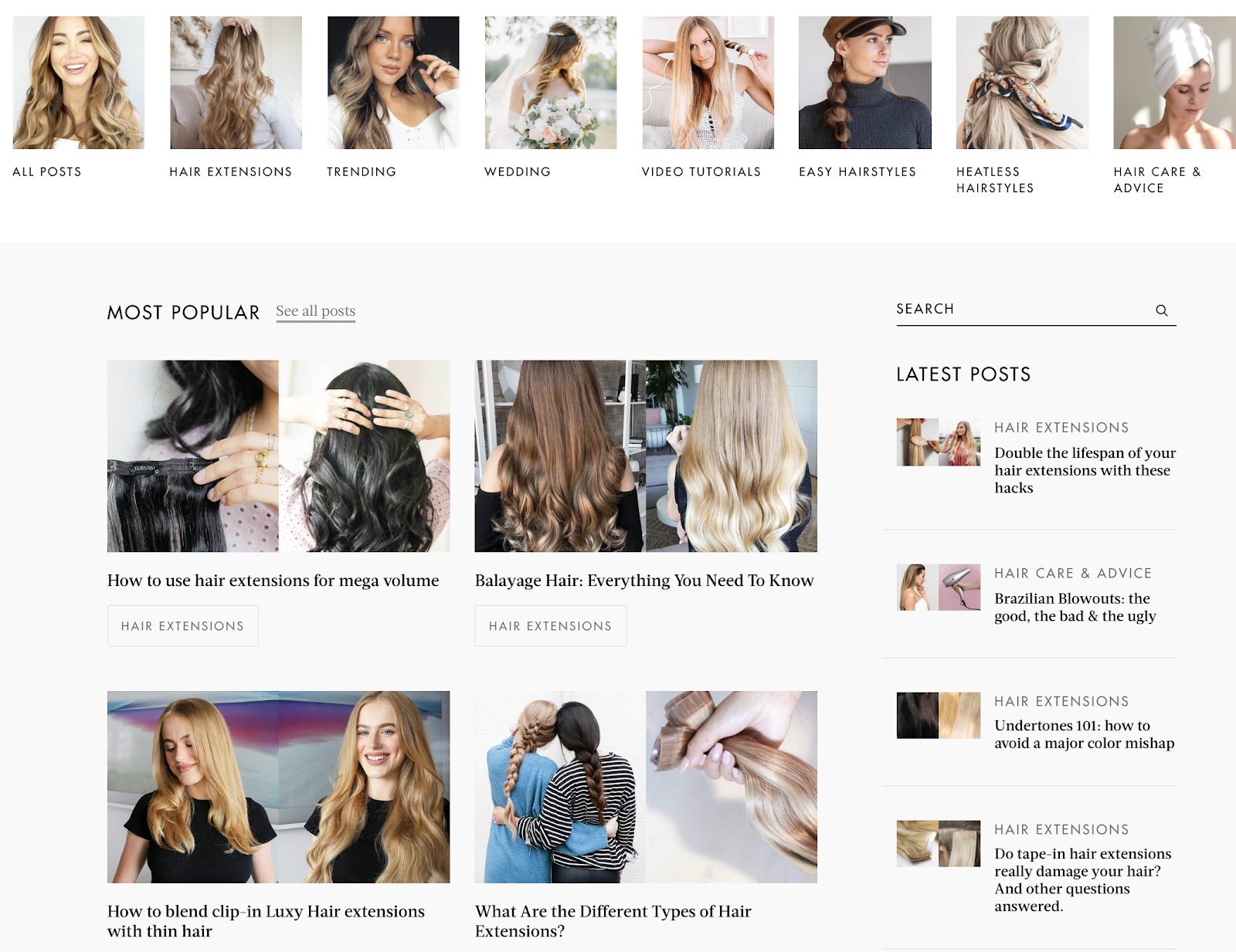
At the end of each post, Luxy also showcases any products mentioned in the content:
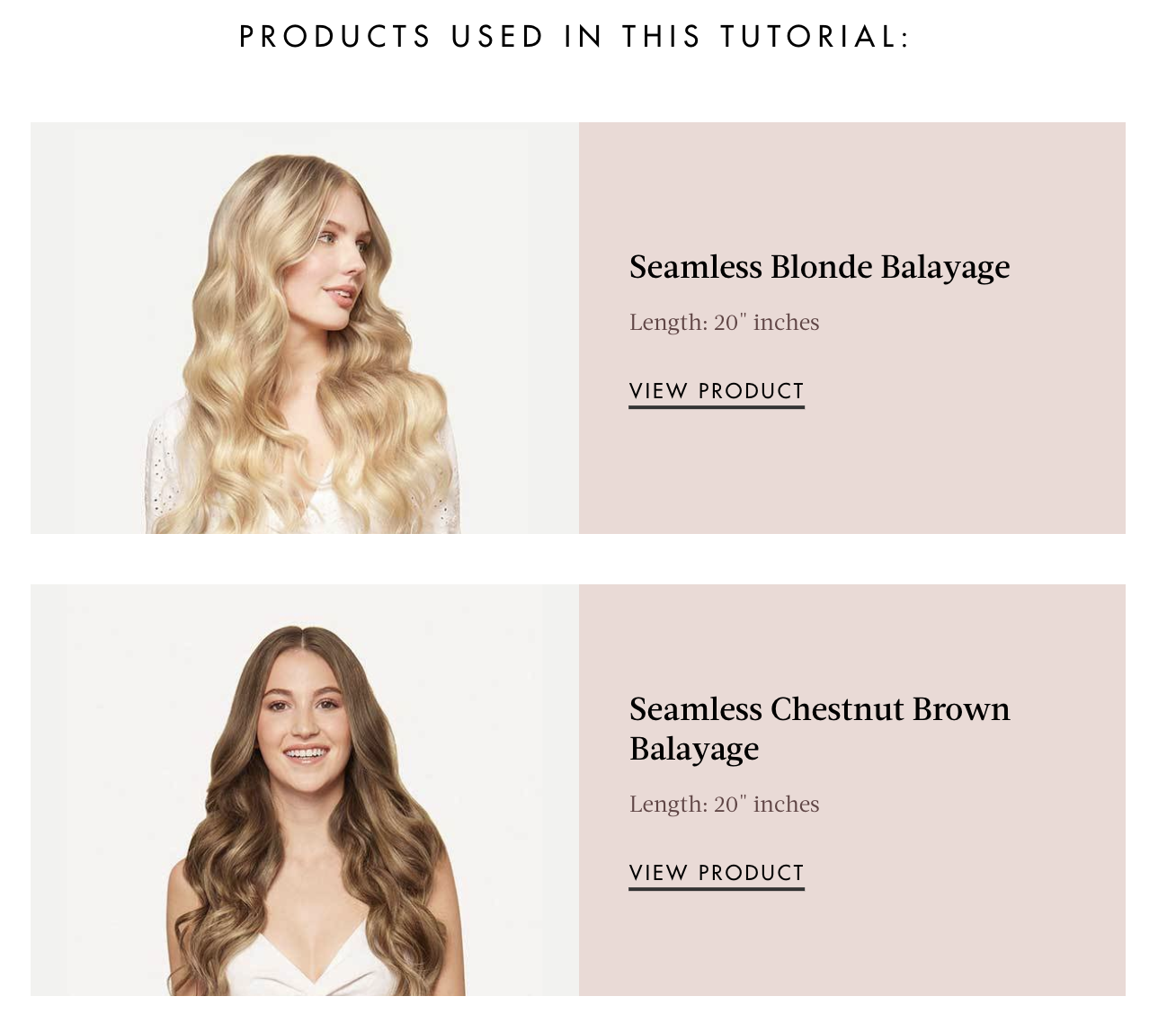
And like Beardbrand, it uses fun, interactive quizzes as a way to capture leads:

The Best Apps For Shopify Blogs
If you want to grow your traffic (and your business), a blog is one of the most effective channels available.
The five examples listed above highlight exactly how powerful content marketing can be for Shopify businesses.
But none of these examples would be possible without the help of some great Shopify apps.
To help you get started, I’ve dug into these sites to uncover the Shopify apps they are using on their blogs.
Click the button below to see the 10 Shopify apps I found.
Add A Comment
VIEW THE COMMENTS